The Trump Classified Documents Indictment, Annotated
The Justice Department on Friday unveiled an indictment charging former President Donald J. Trump with seven crimes. The charges relate to Mr. Trump’s hoarding of sensitive government documents after he left office and his refusal to return them, even after being subpoenaed for all remaining records in his possession that were marked as classified.
The New York Times is annotating the indictment. This page will be updated.
Download the original PDF.
New York Times Analysis
Next »
1
Although law enforcement officials conducted most of the investigation using a grand jury in Washington, the special counsel chose to bring the case in Florida. That avoided a potential legal fight over venue, but it carried the risk that the case would be assigned to Judge Aileen M. Cannon, who was appointed by former President Donald J. Trump and who has issued a series of rulings unusually favorable to him. Judge Cannon will indeed take the case, according to people familiar with the matter.

New York Times Analysis
« Previous
Next »
2
The indictment lays out the potential danger of the classified information in the documents Mr. Trump kept at his Mar-a-Lago estate.

New York Times Analysis
« Previous
Next »
3
As has been recently reported, the special counsel, Jack Smith, has apparently obtained an audio recording of Mr. Trump acknowledging that he knew a document in his possession was still classified. That stands at odds with Mr. Trump’s public claims that he had declassified all the materials he took from the Oval Office. (No credible evidence has emerged to support that claim, which his lawyers had declined to repeat in court, where there are professional consequences for lying.)
4
The indictment lays out five specific actions by Mr. Trump that it says were illegal obstruction.

New York Times Analysis
« Previous
Next »
5
Mr. Trump’s aide Walt Nauta was also indicted and is described in this filing as a co-conspirator in the crimes.
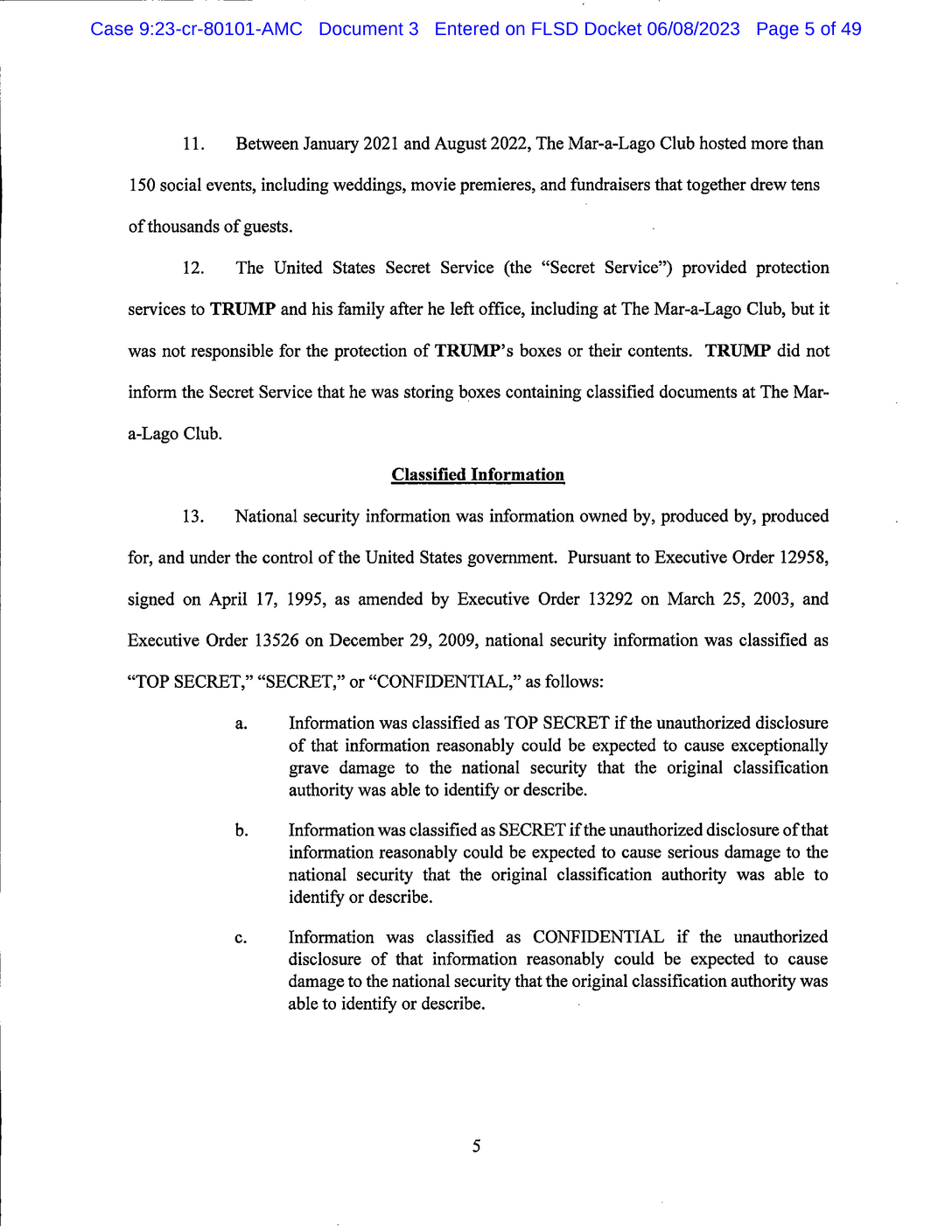
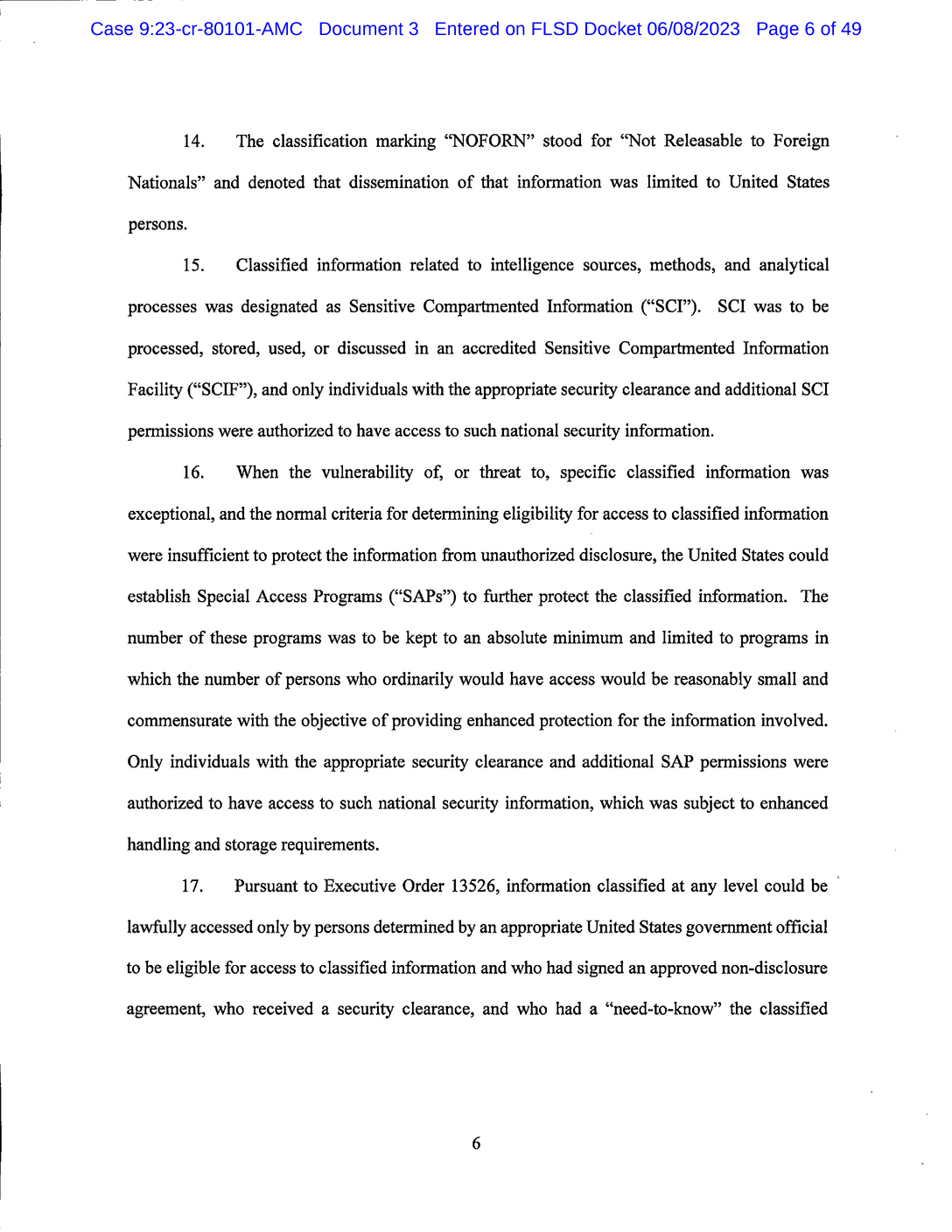
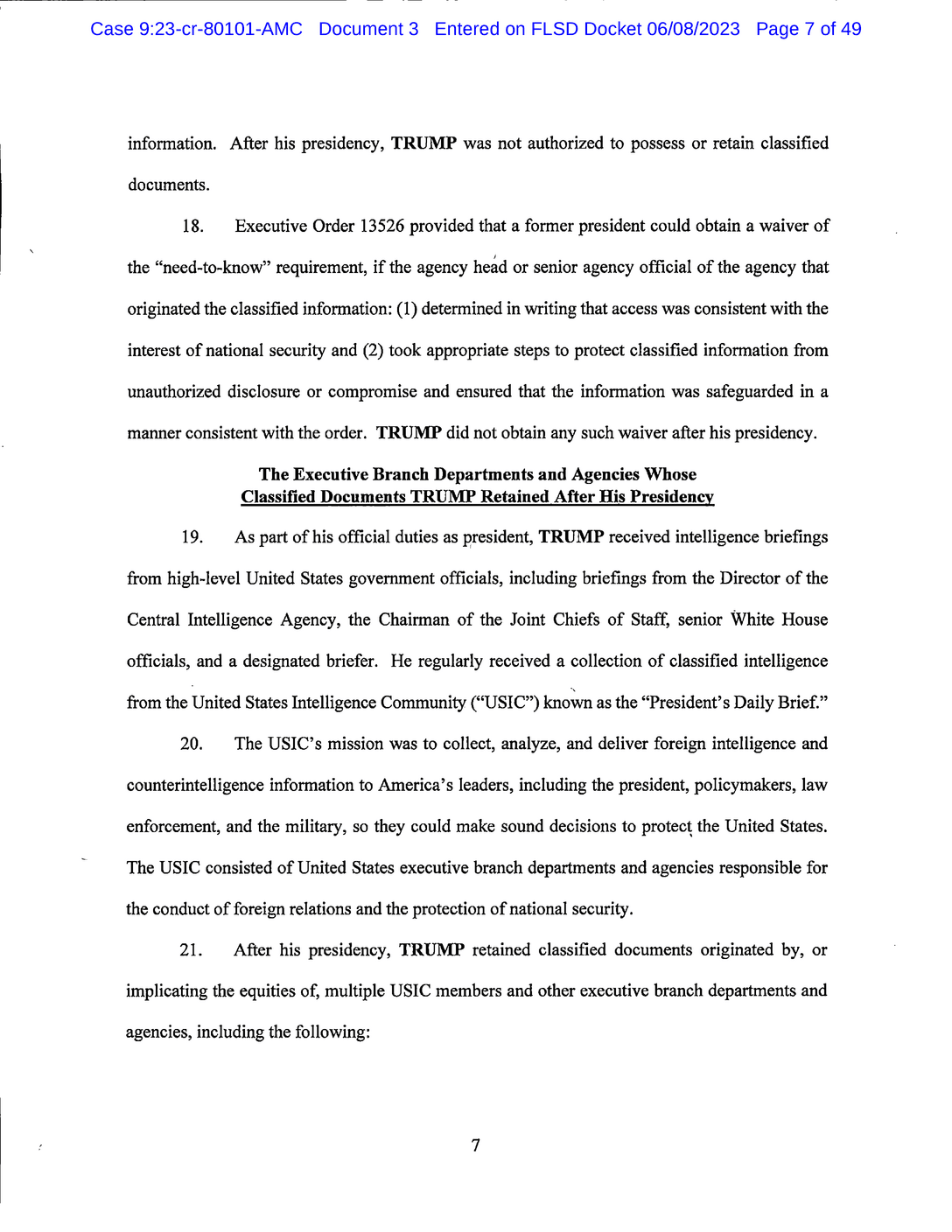
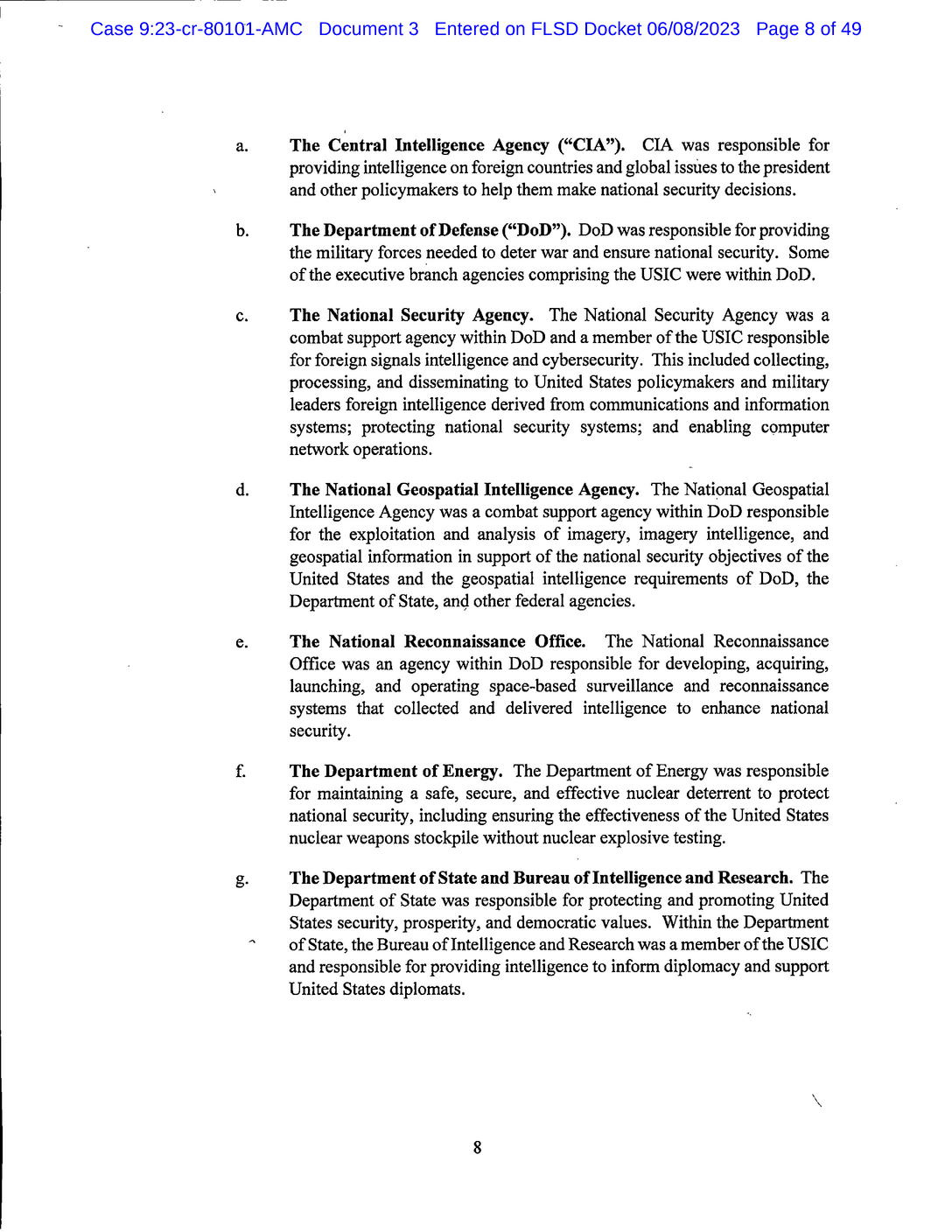
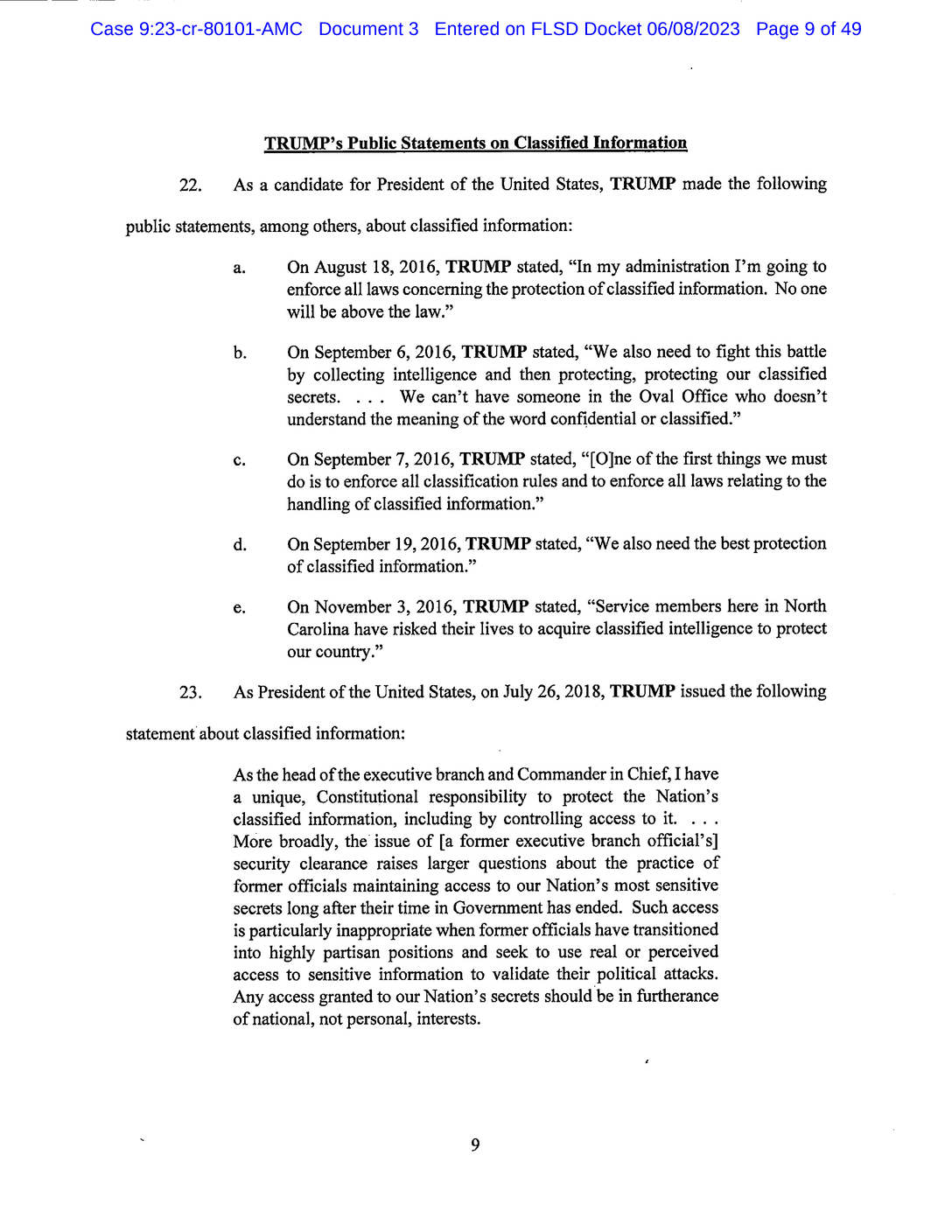
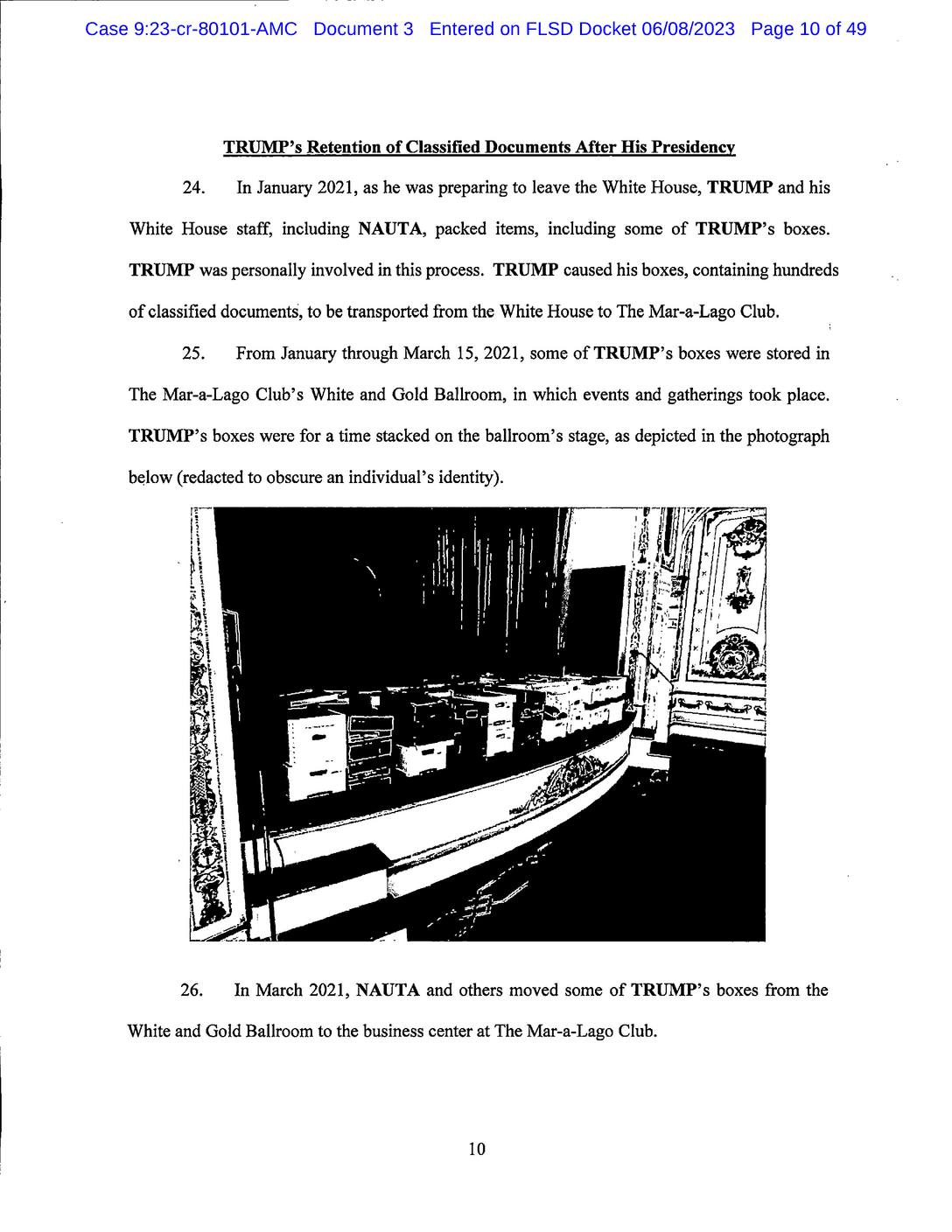
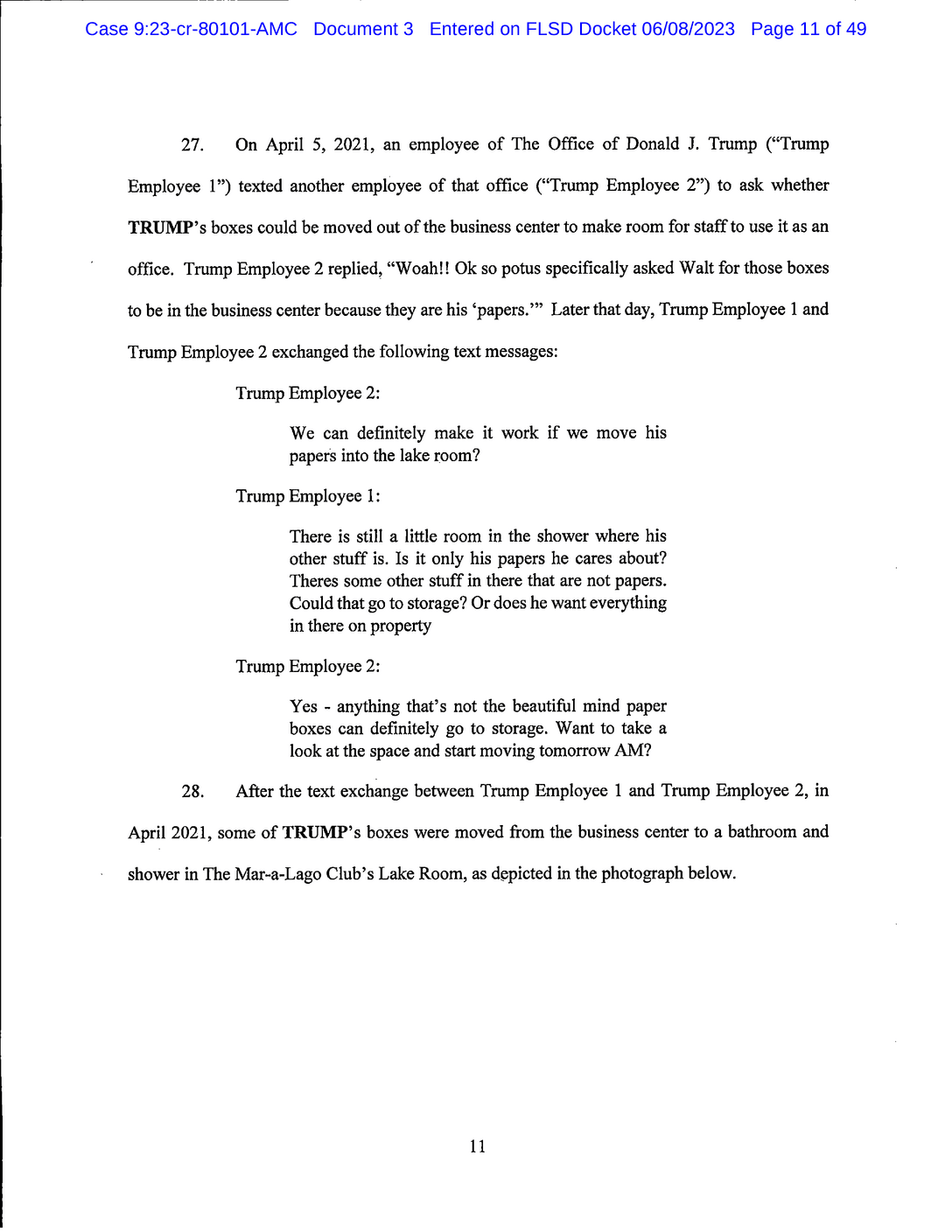
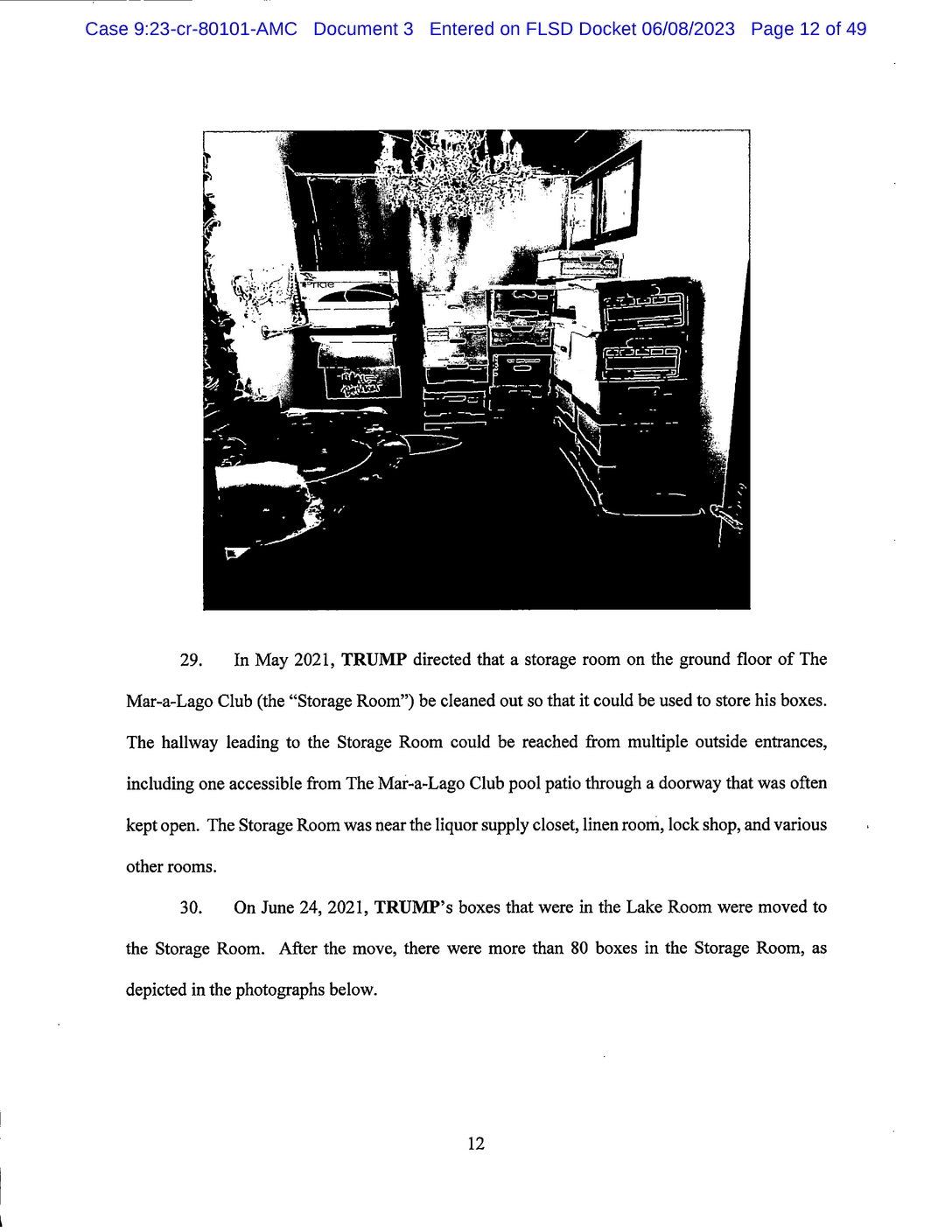
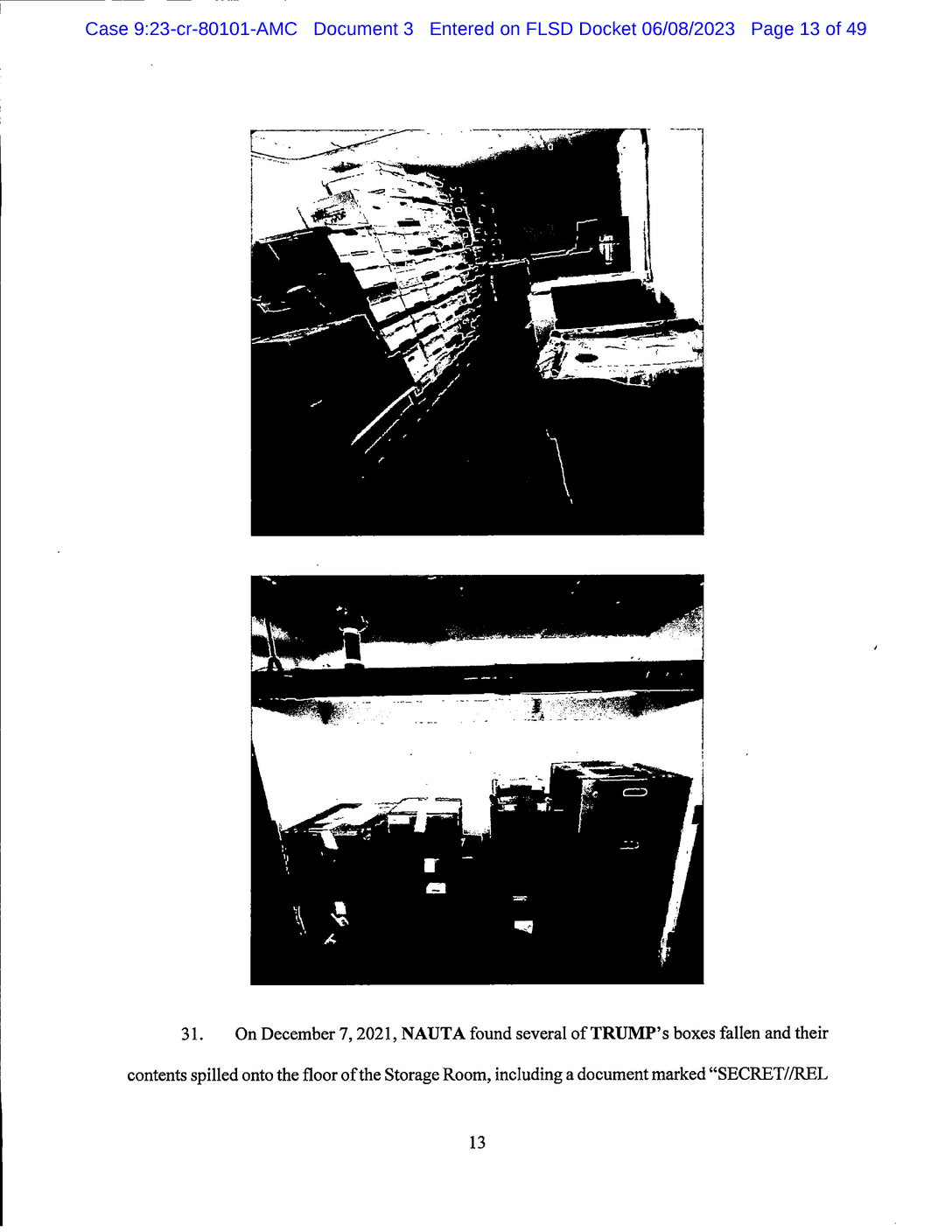
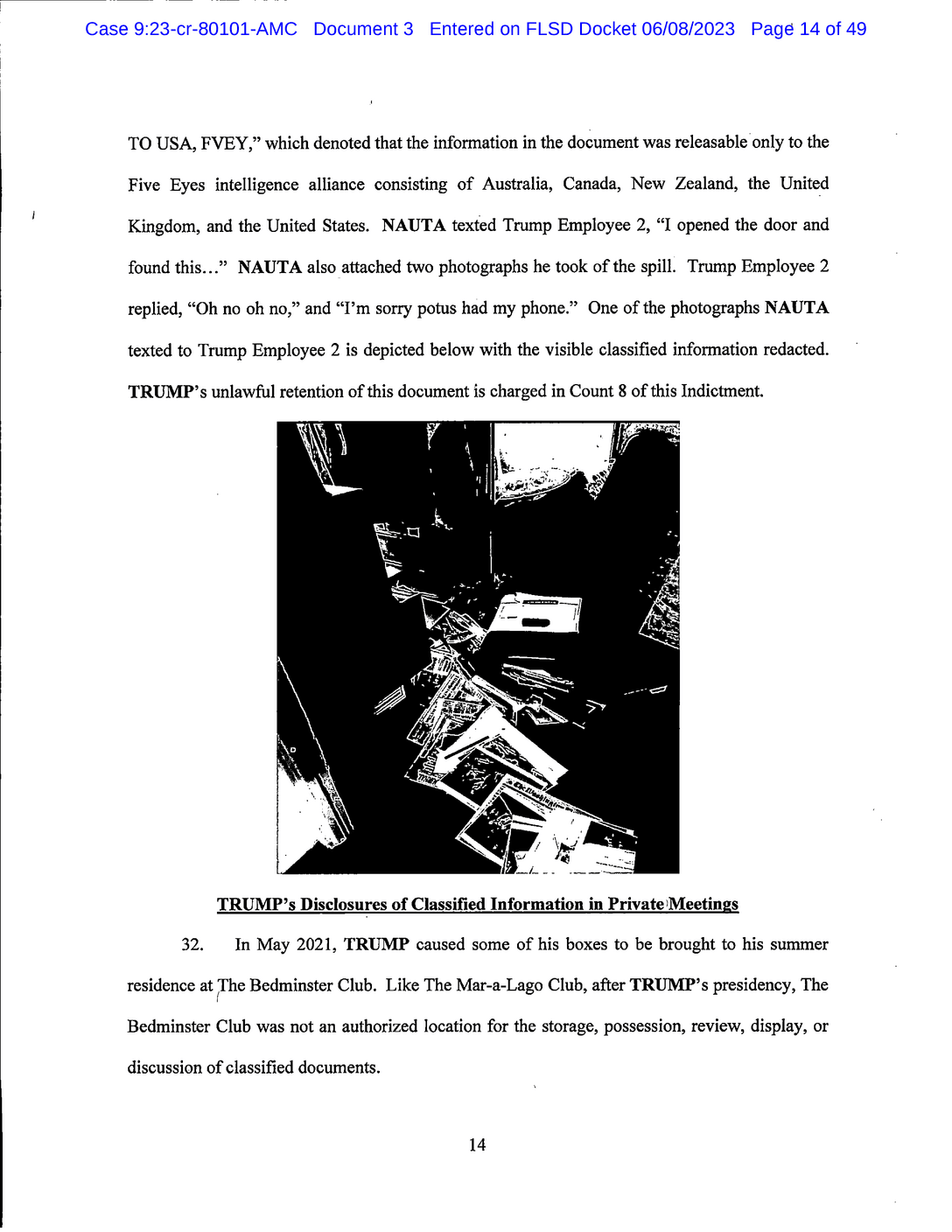
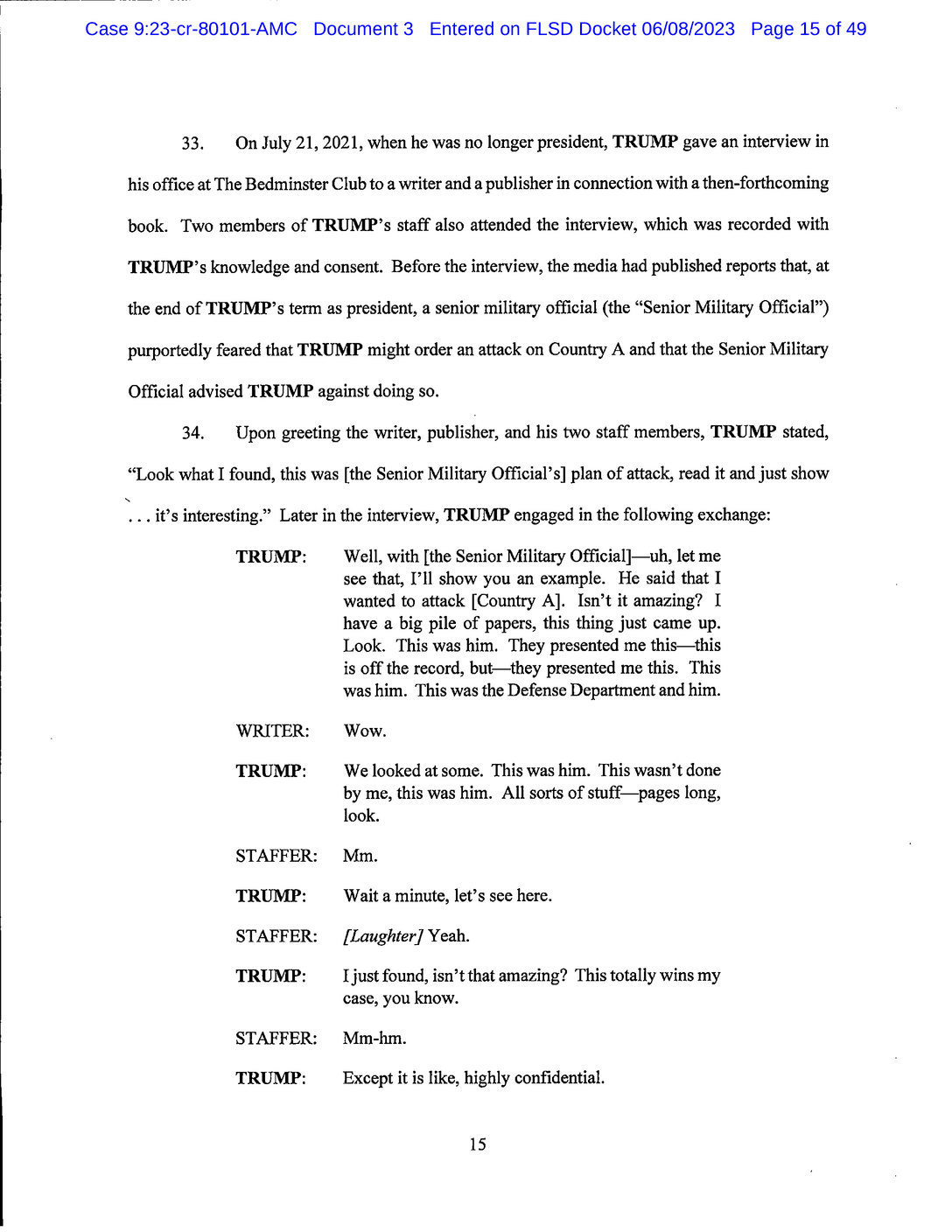
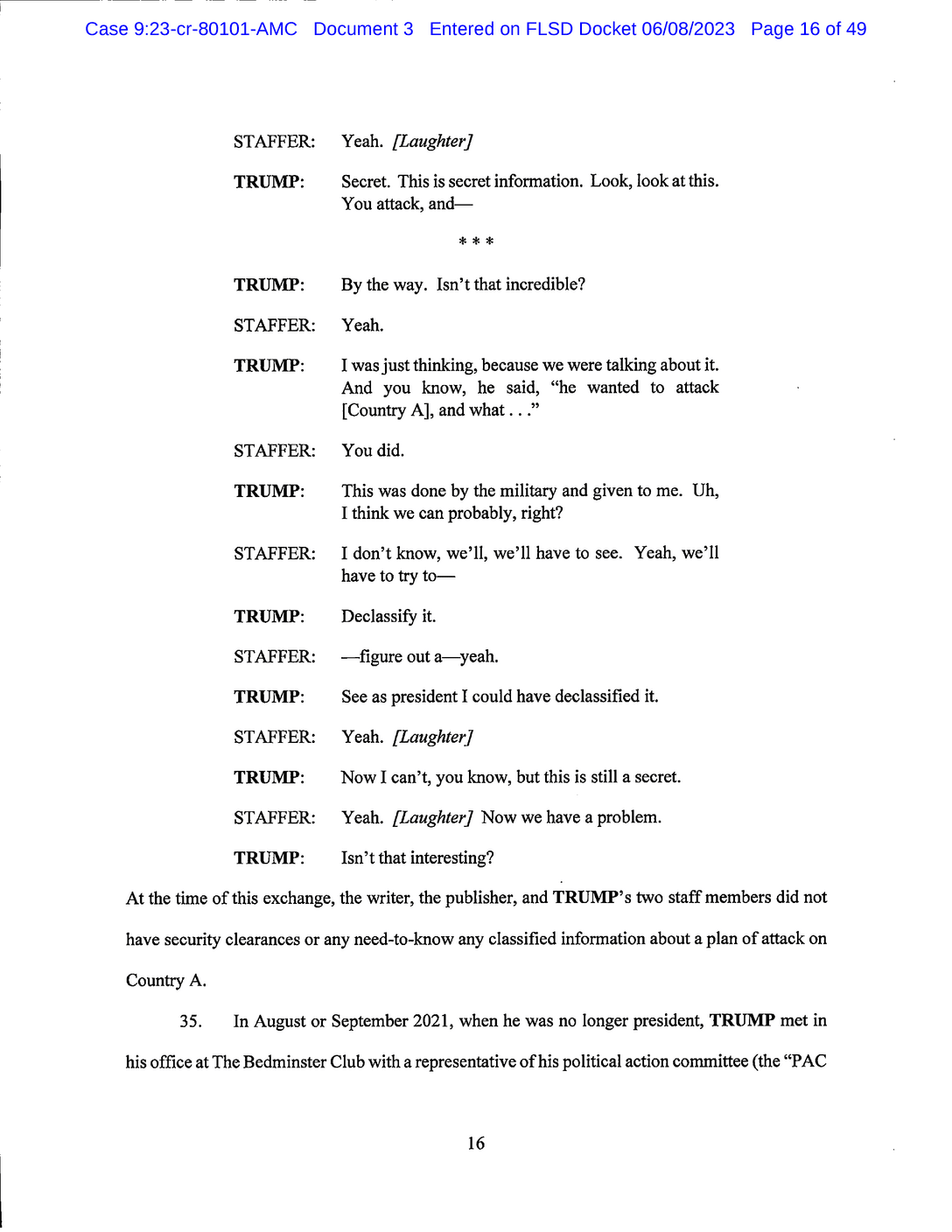
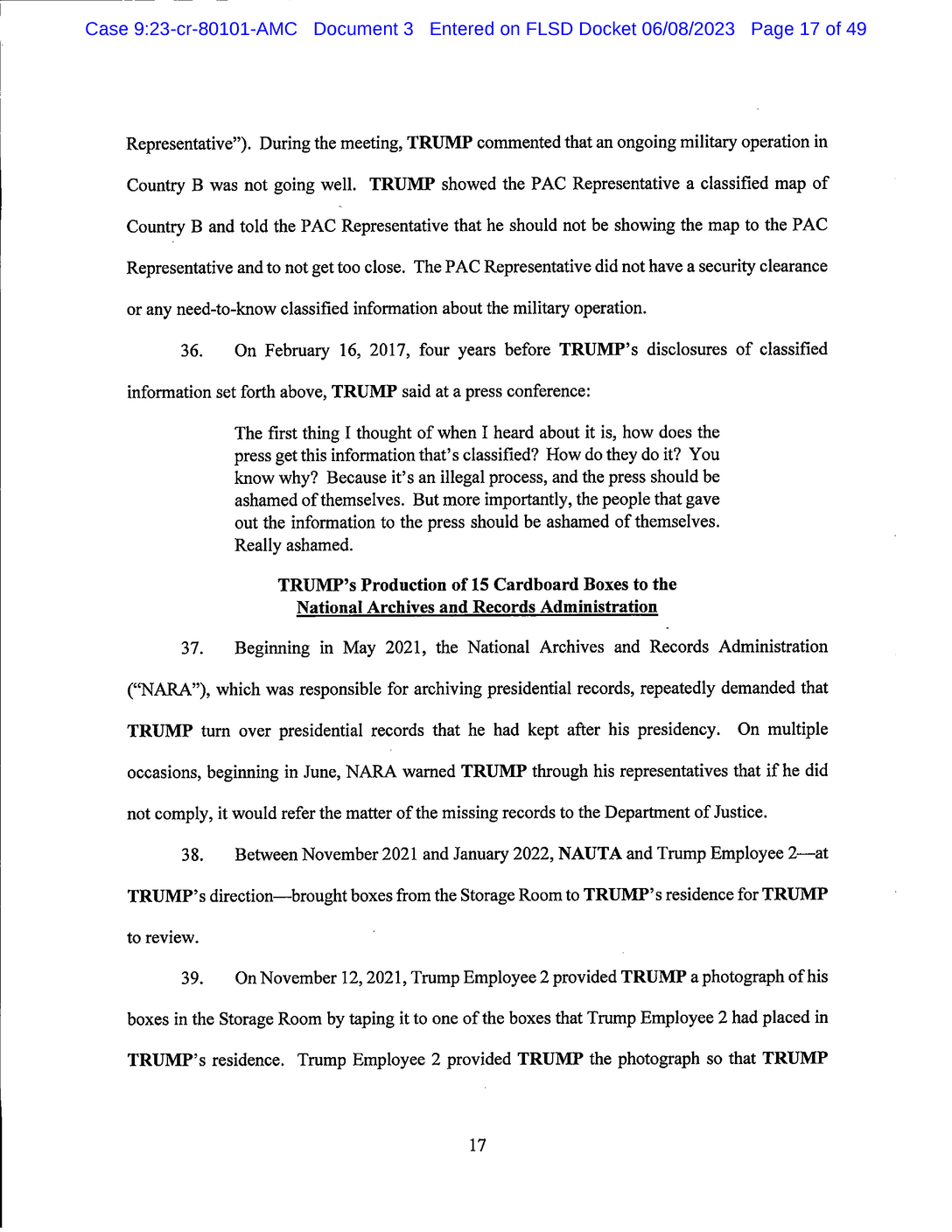
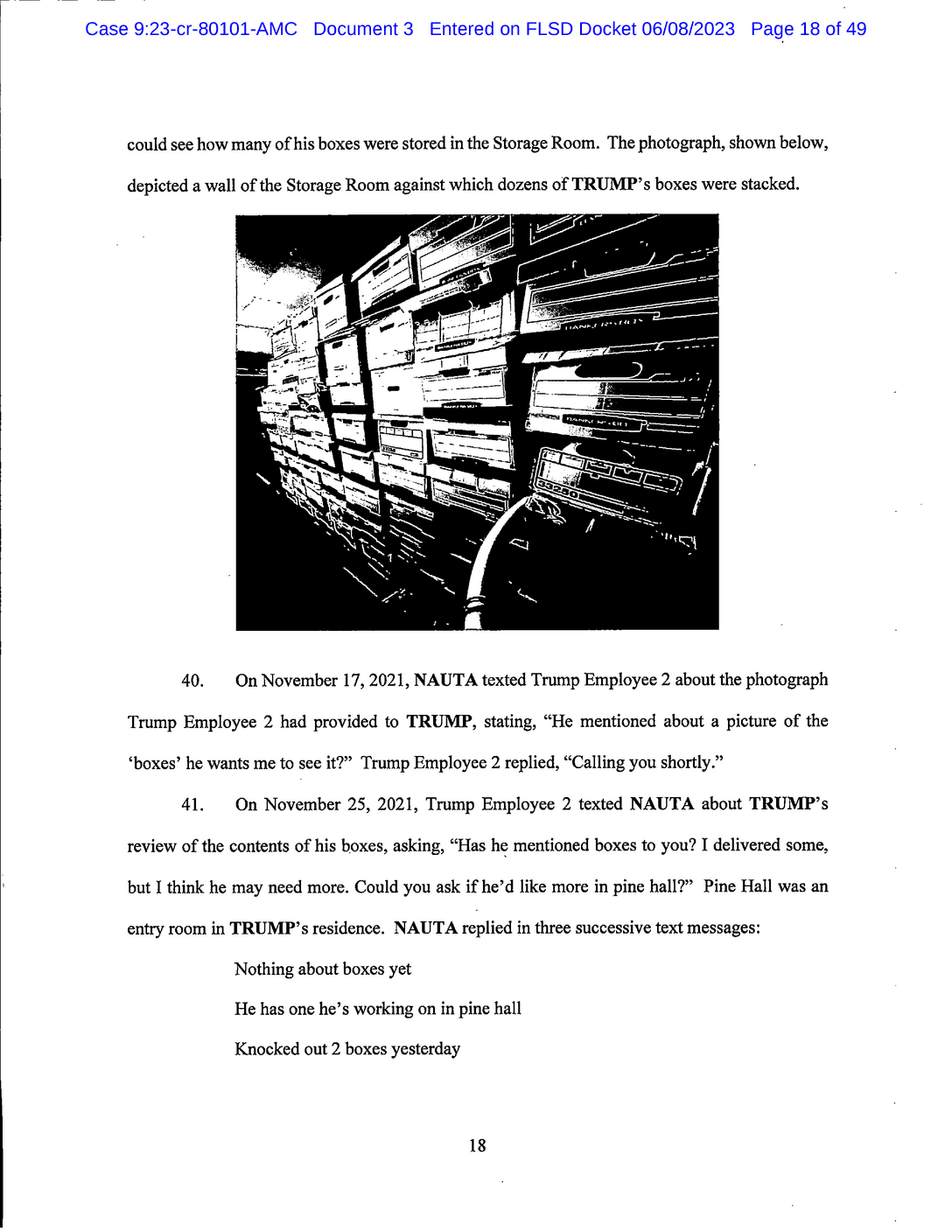
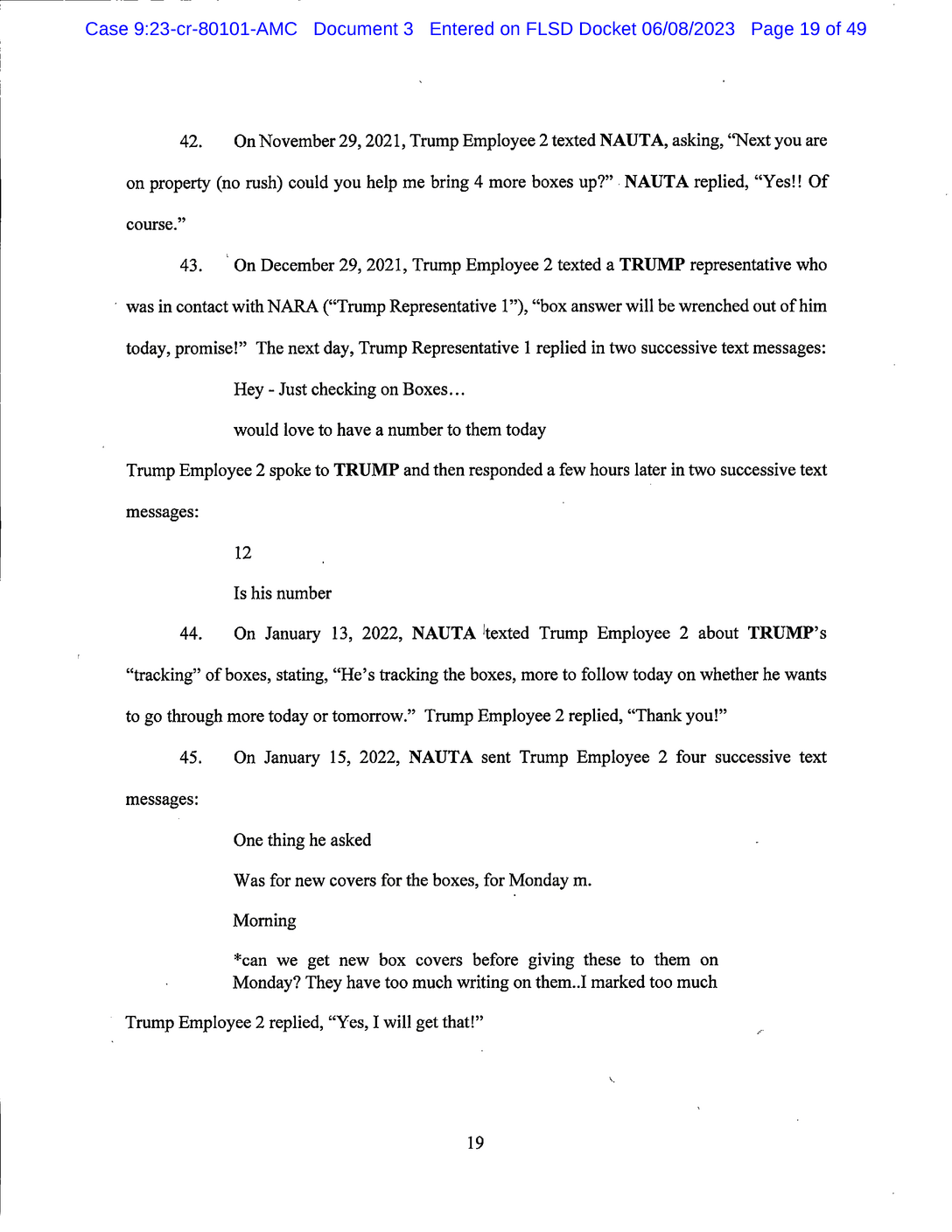
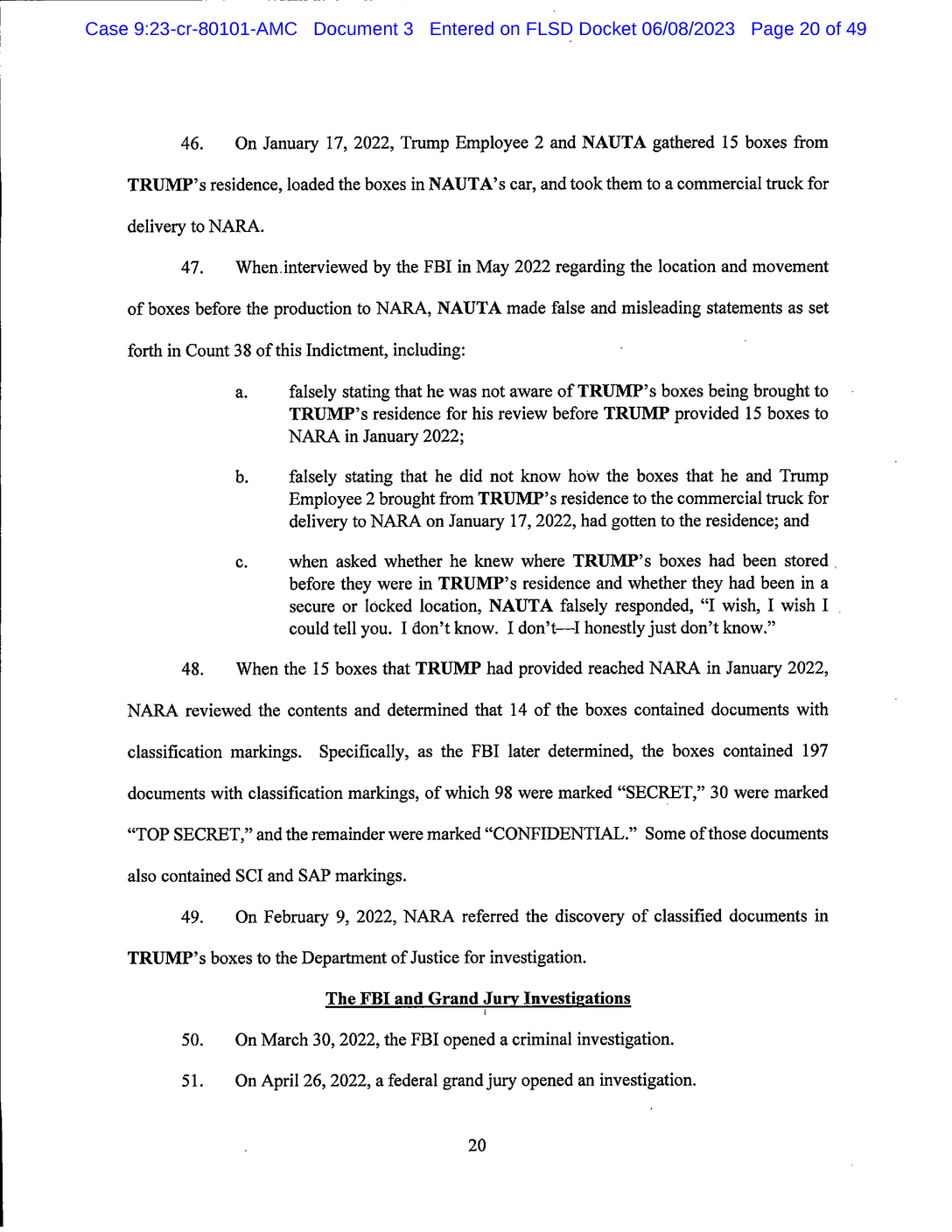
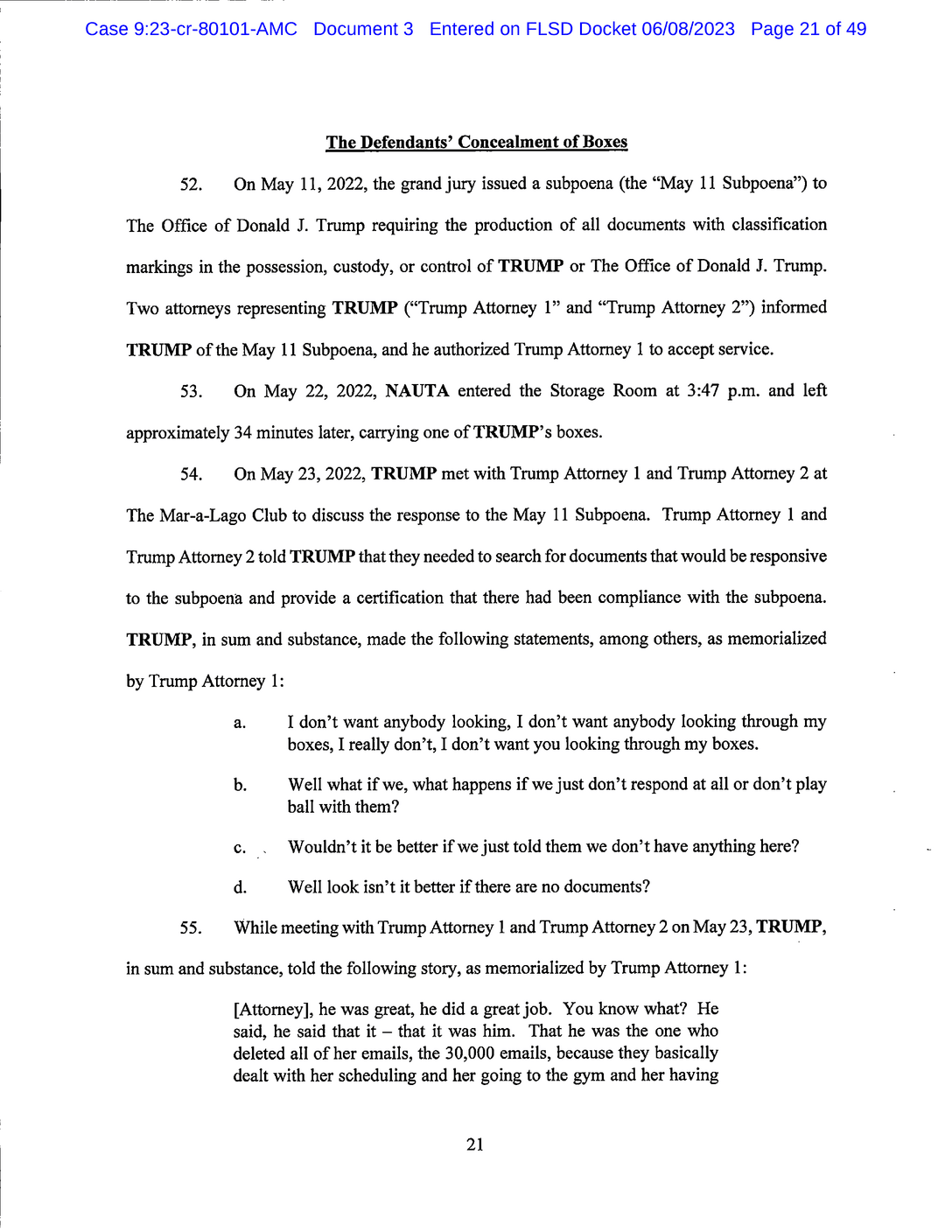
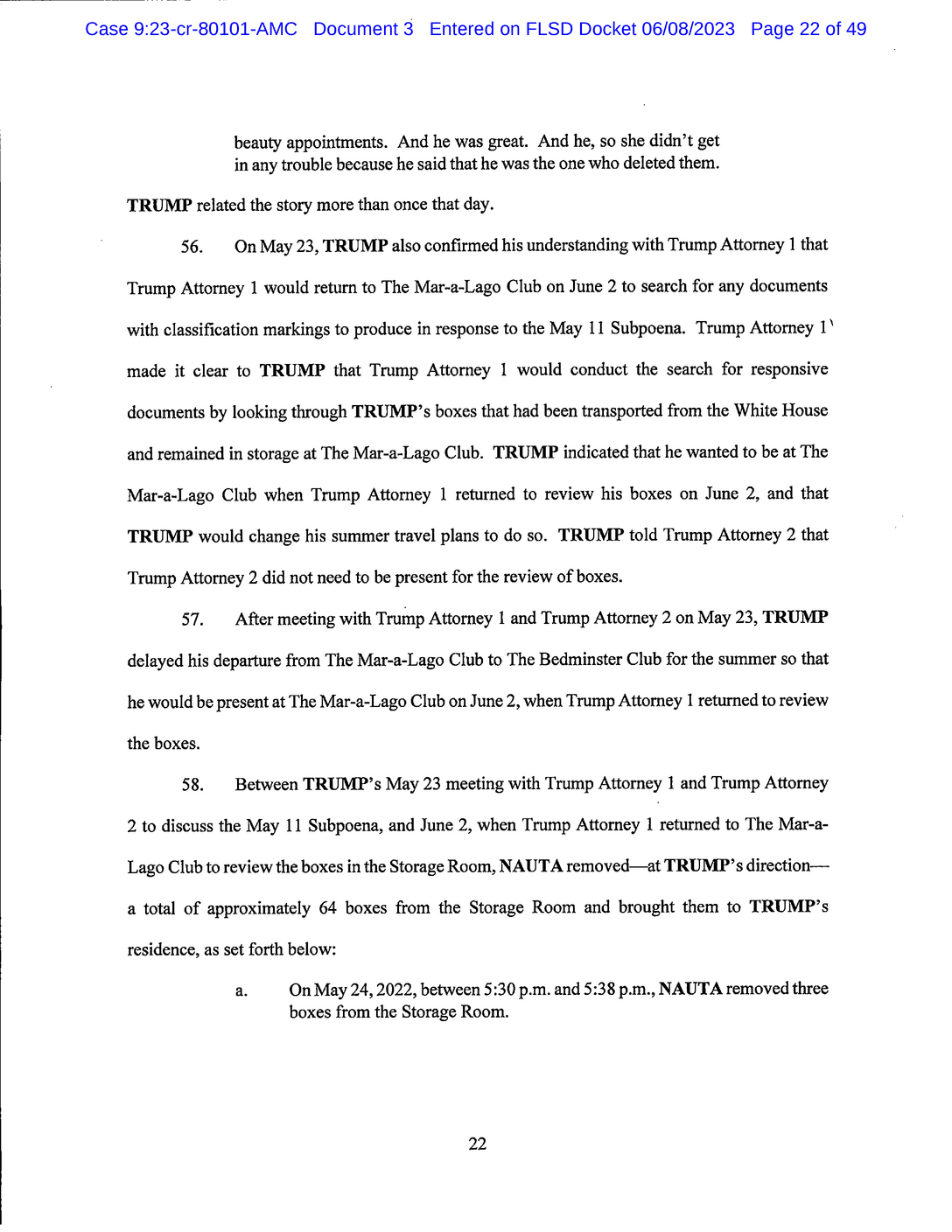
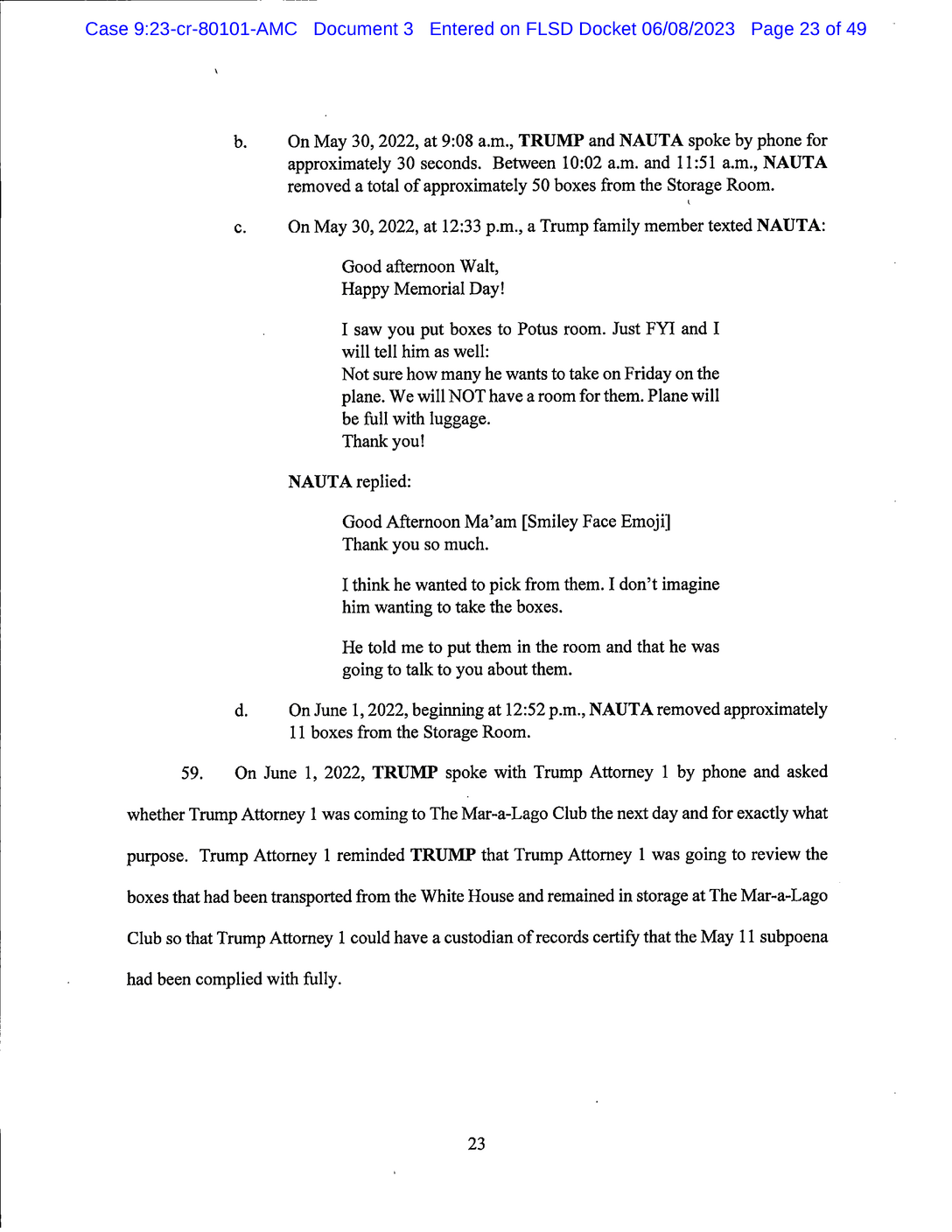
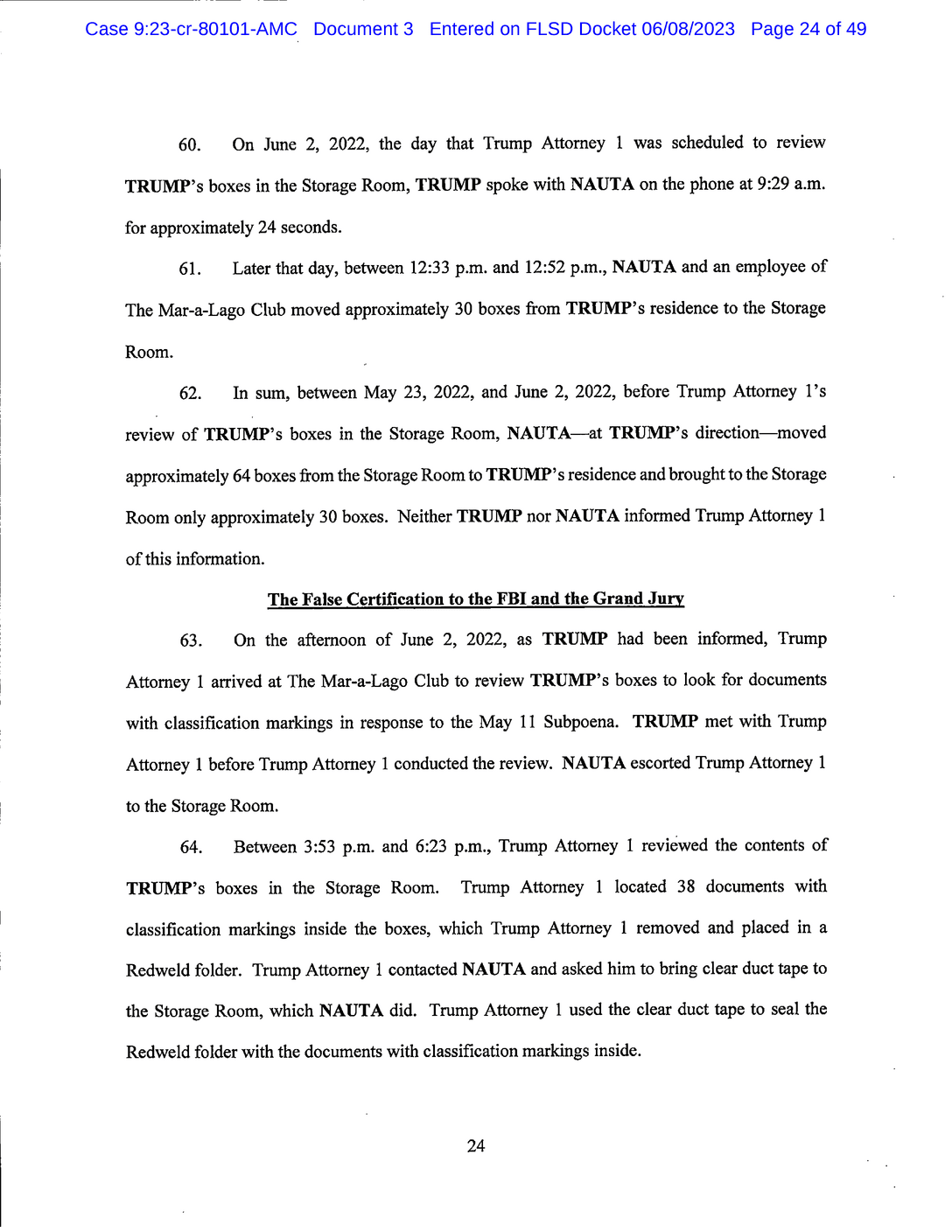
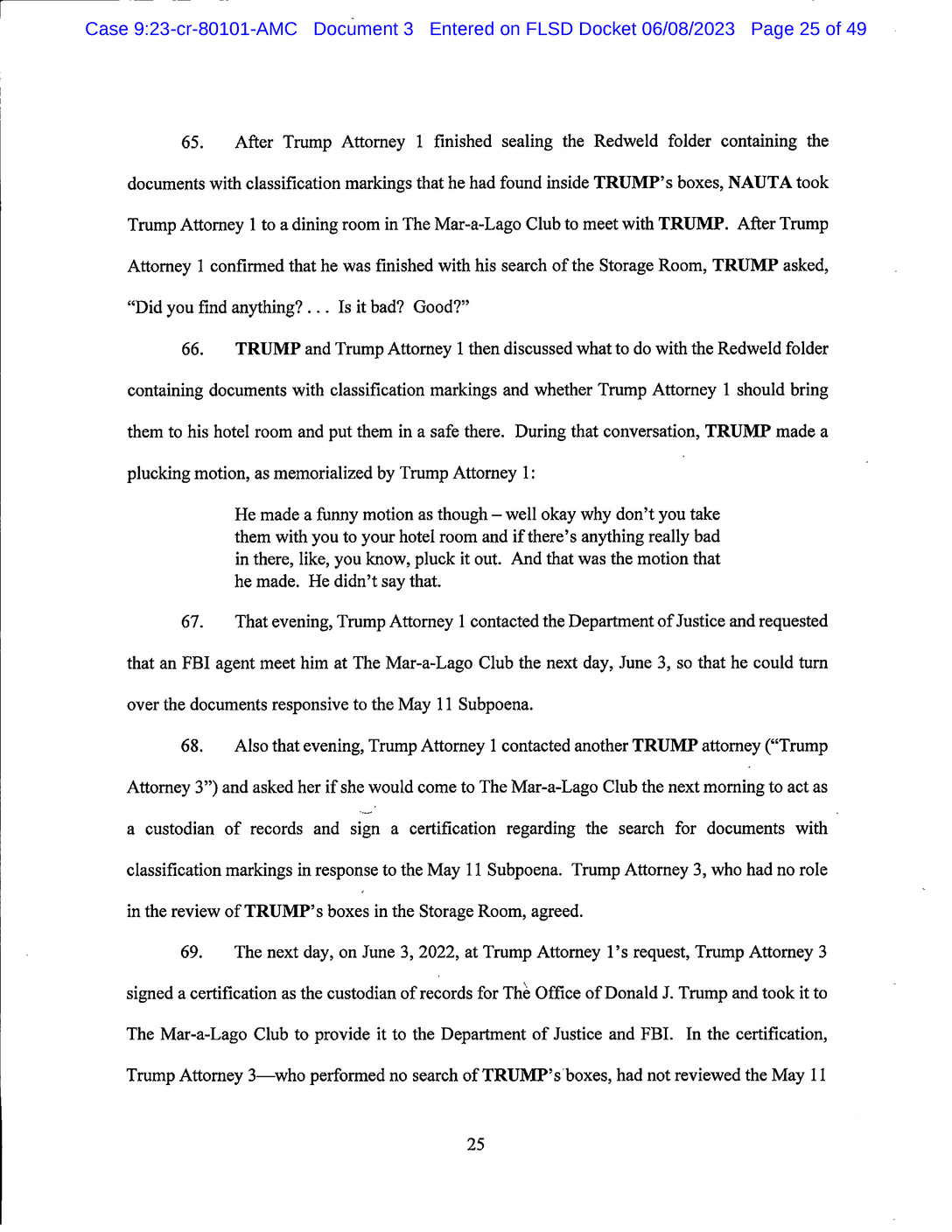
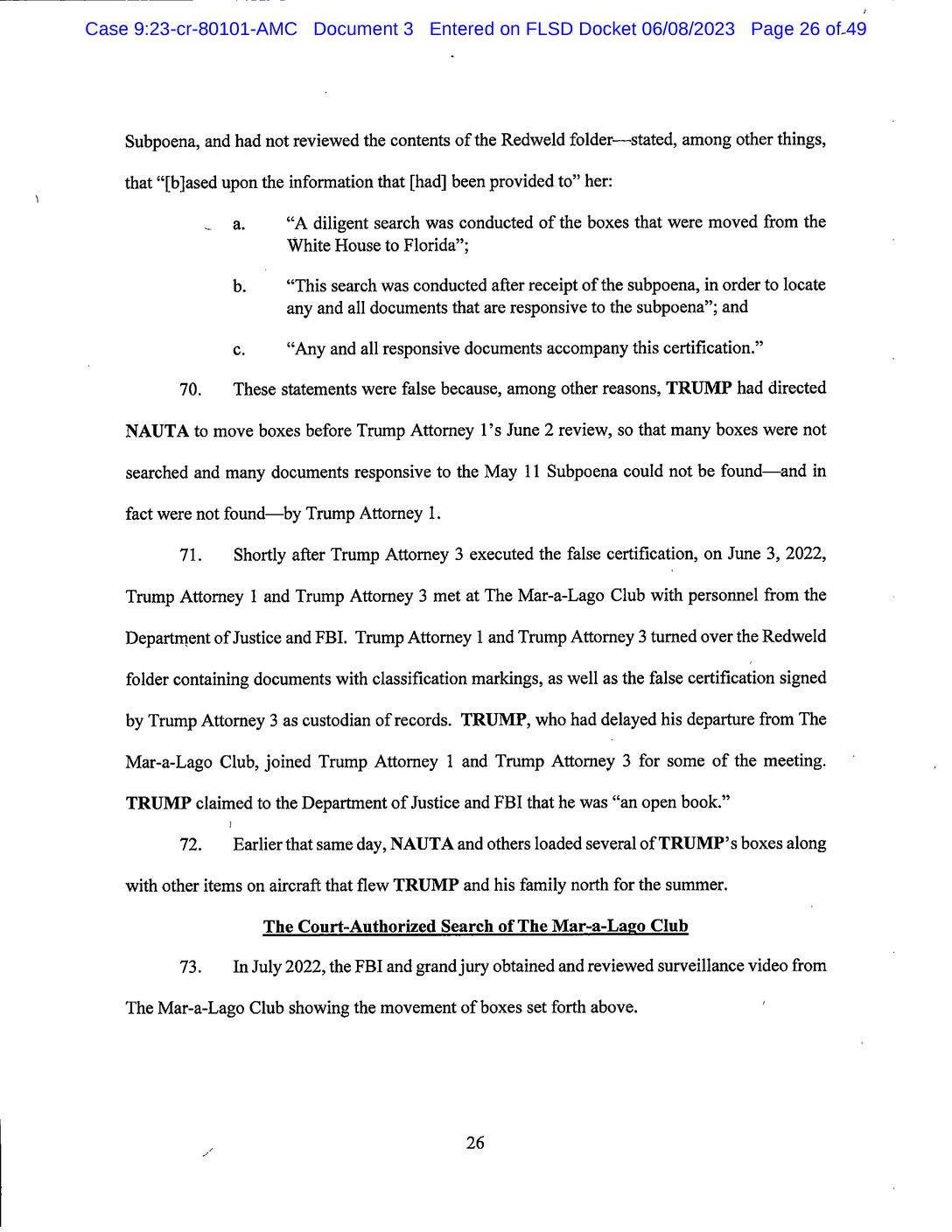
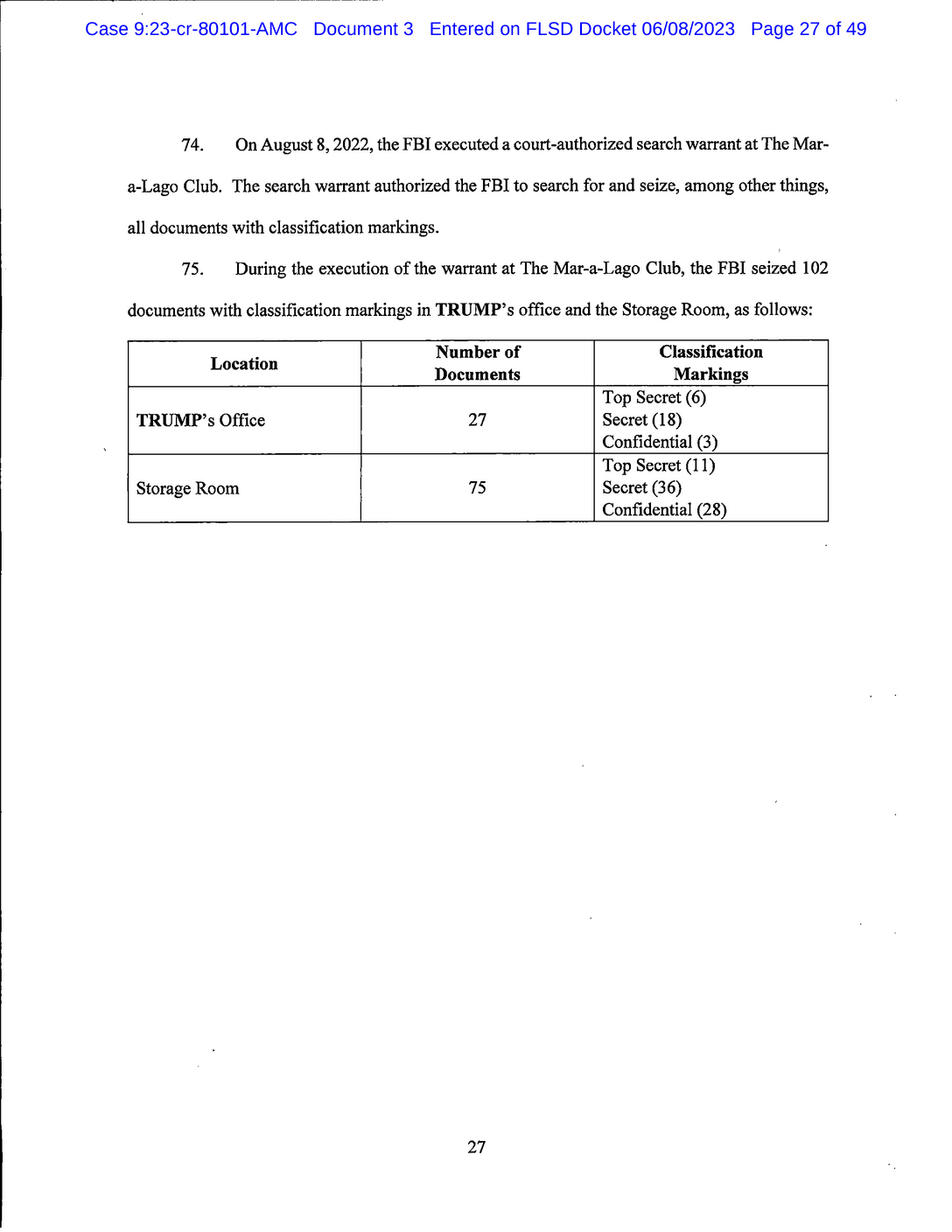
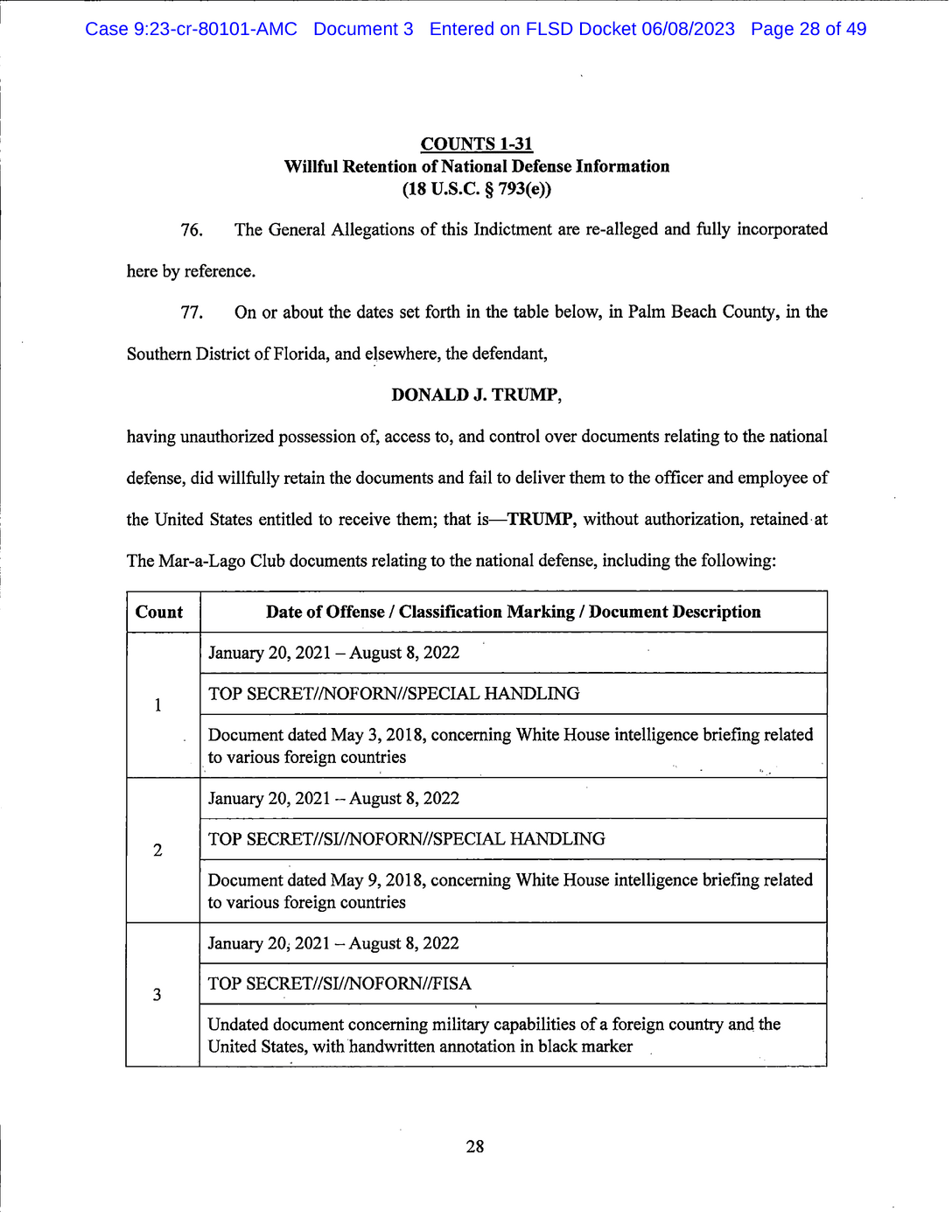
New York Times Analysis
« Previous
Next »
6
Trump has been charged with violating a provision of the Espionage Act, a 1917 law that makes it a crime to hold onto secret government documents without authorization. This provision was enacted before the advent of the modern classification system, and it does not require prosecutors to prove that the secret documents had been deemed classified. Trump has claimed that he declassified everything that he took from the White House, although no credible evidence has emerged to support that claim. The penalty is up to 10 years per offense.
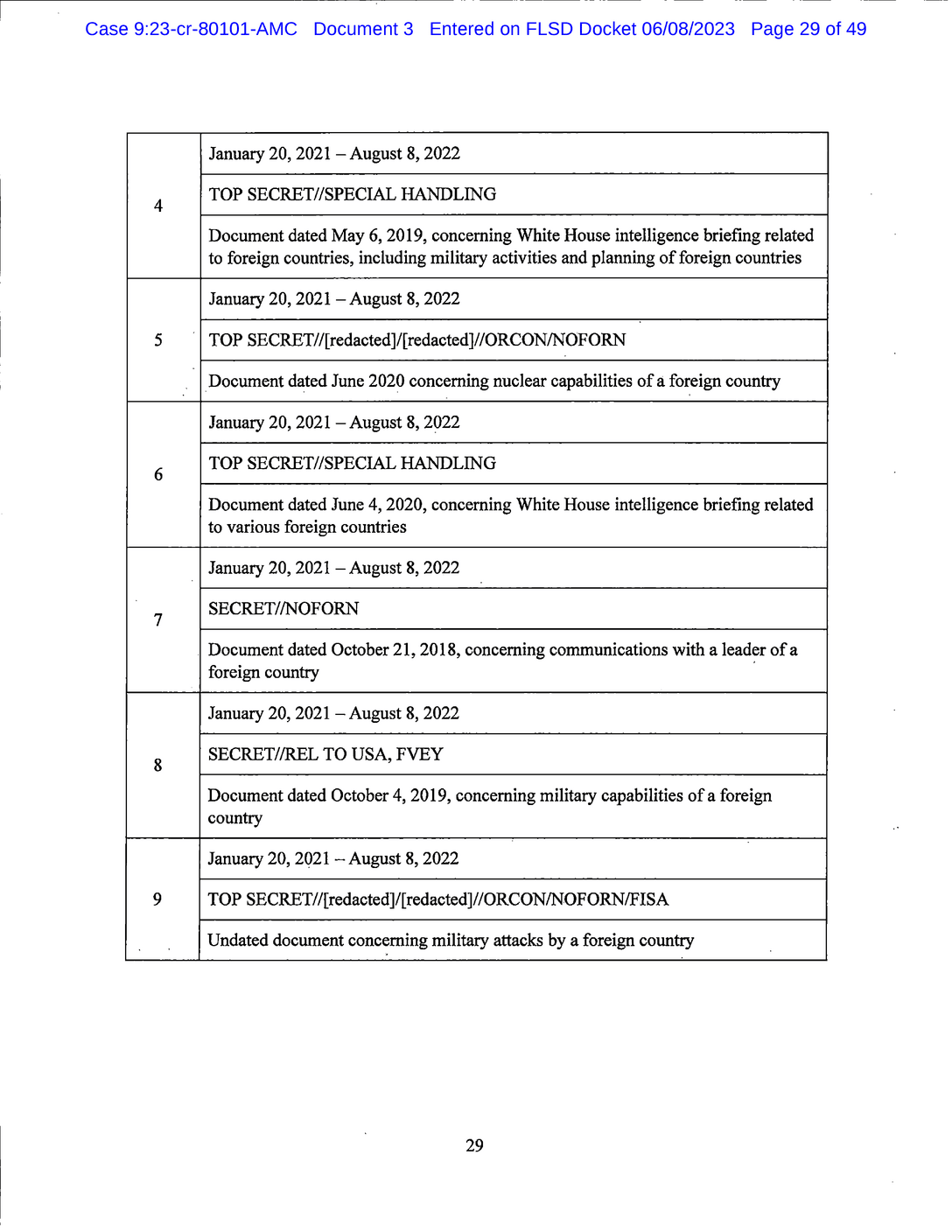
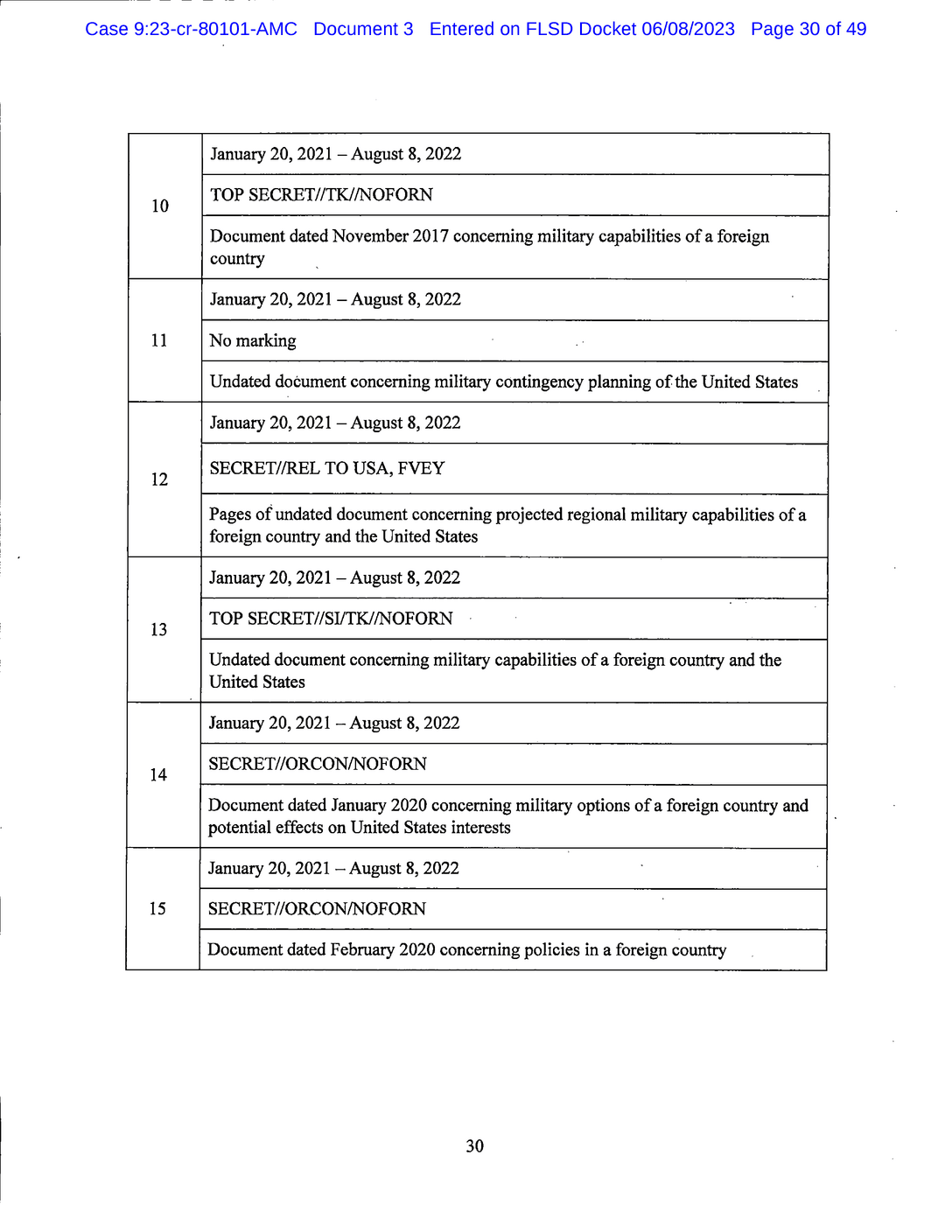
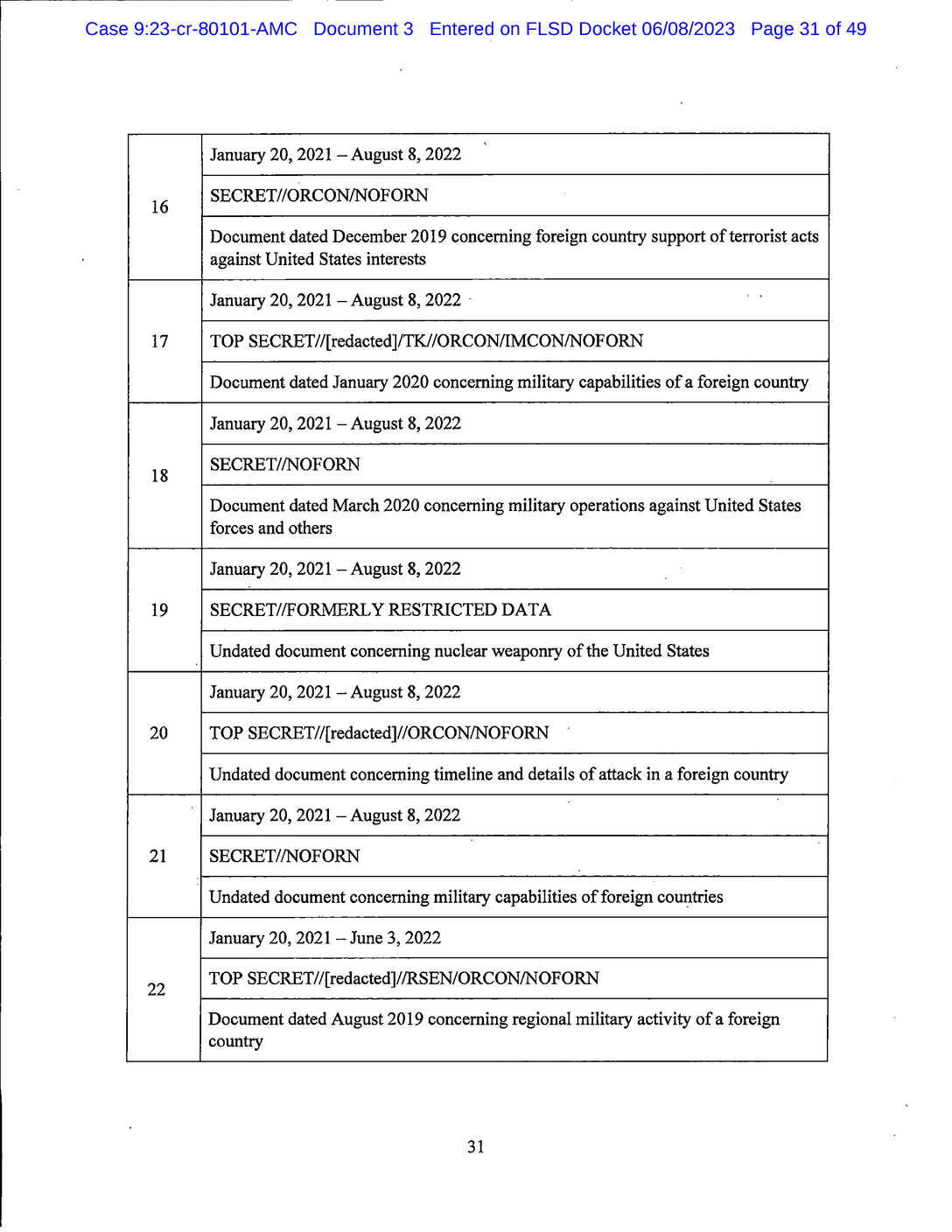
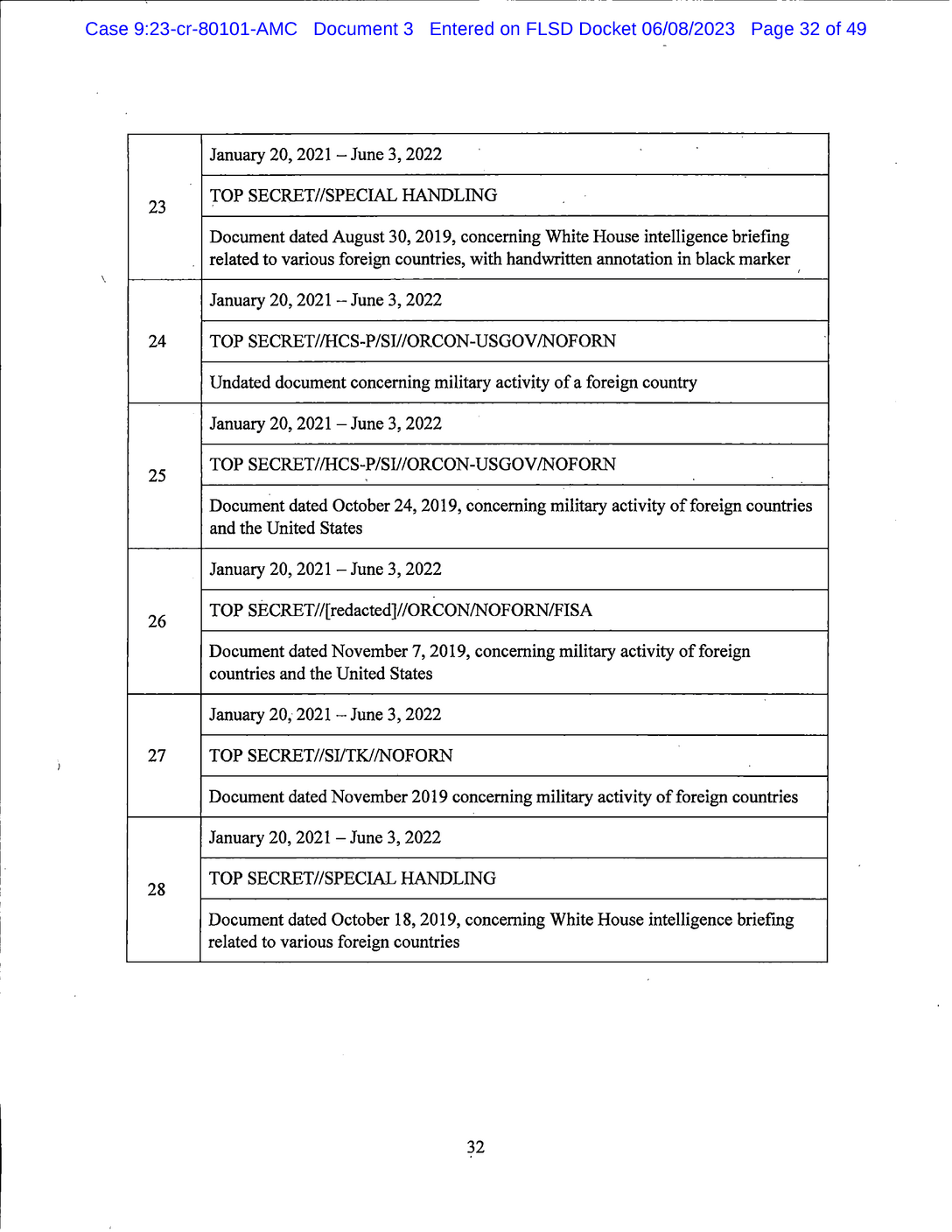
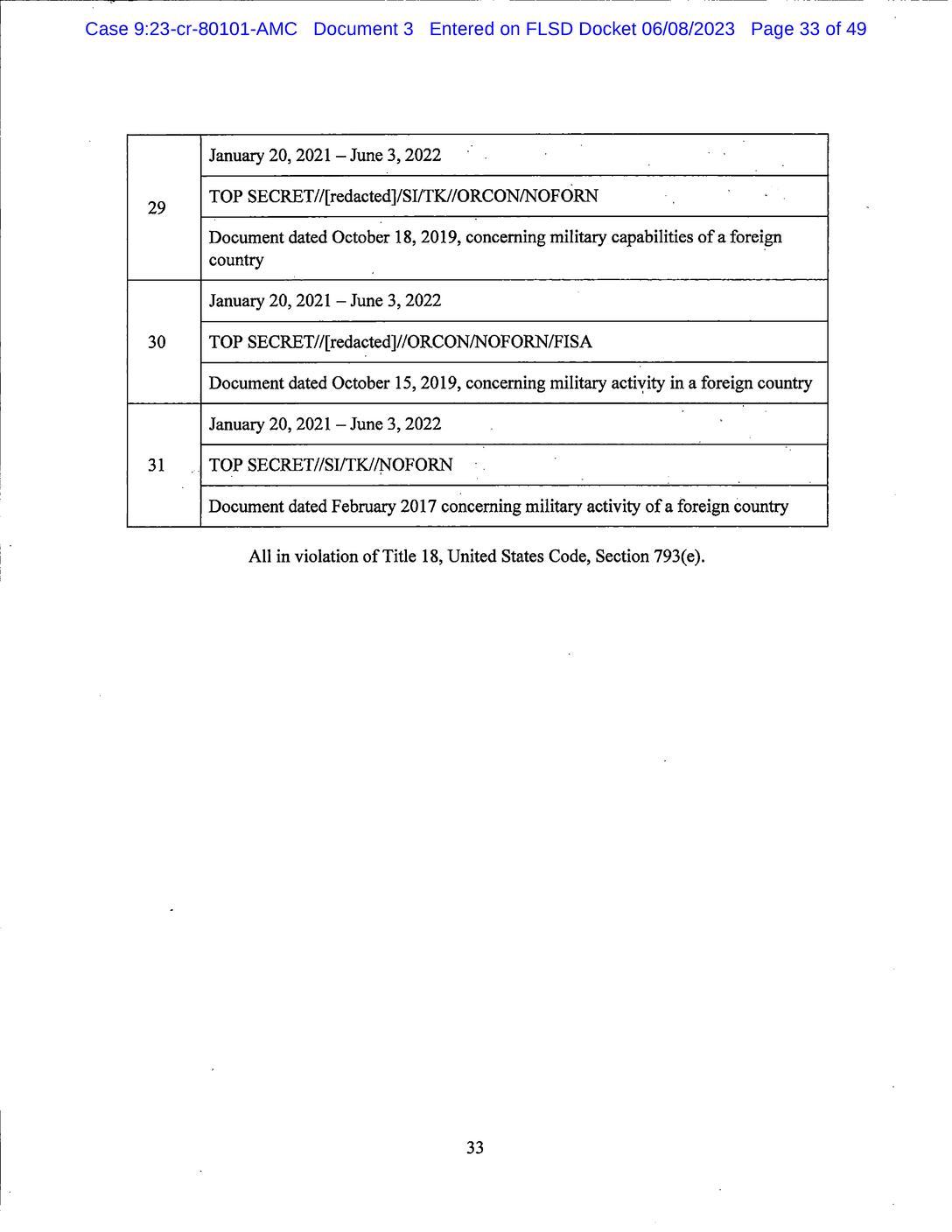
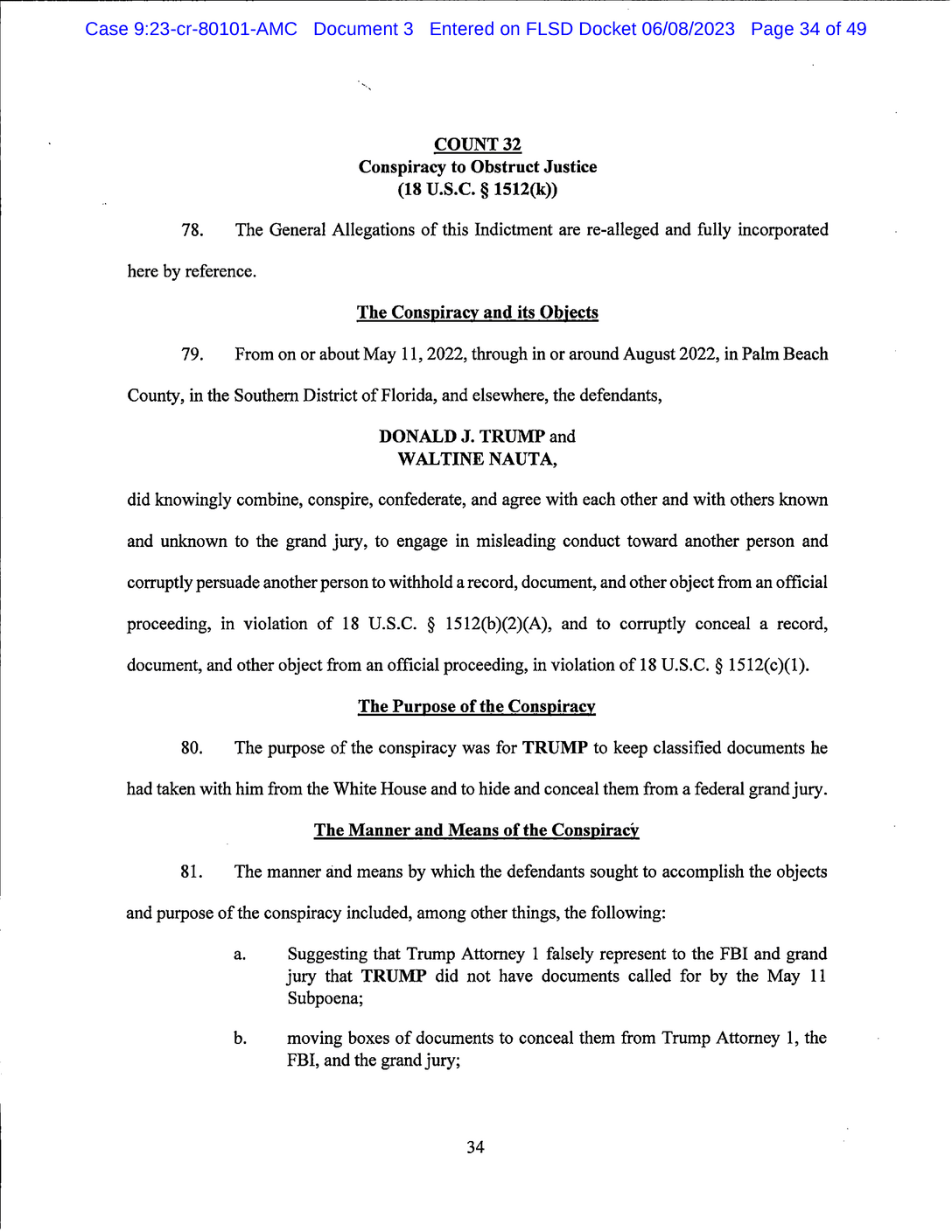
New York Times Analysis
« Previous
Next »
7
Mr. Trump has been charged with violating a law that makes it a crime to corruptly impede an official proceeding. The penalty is up to 20 years per offense.
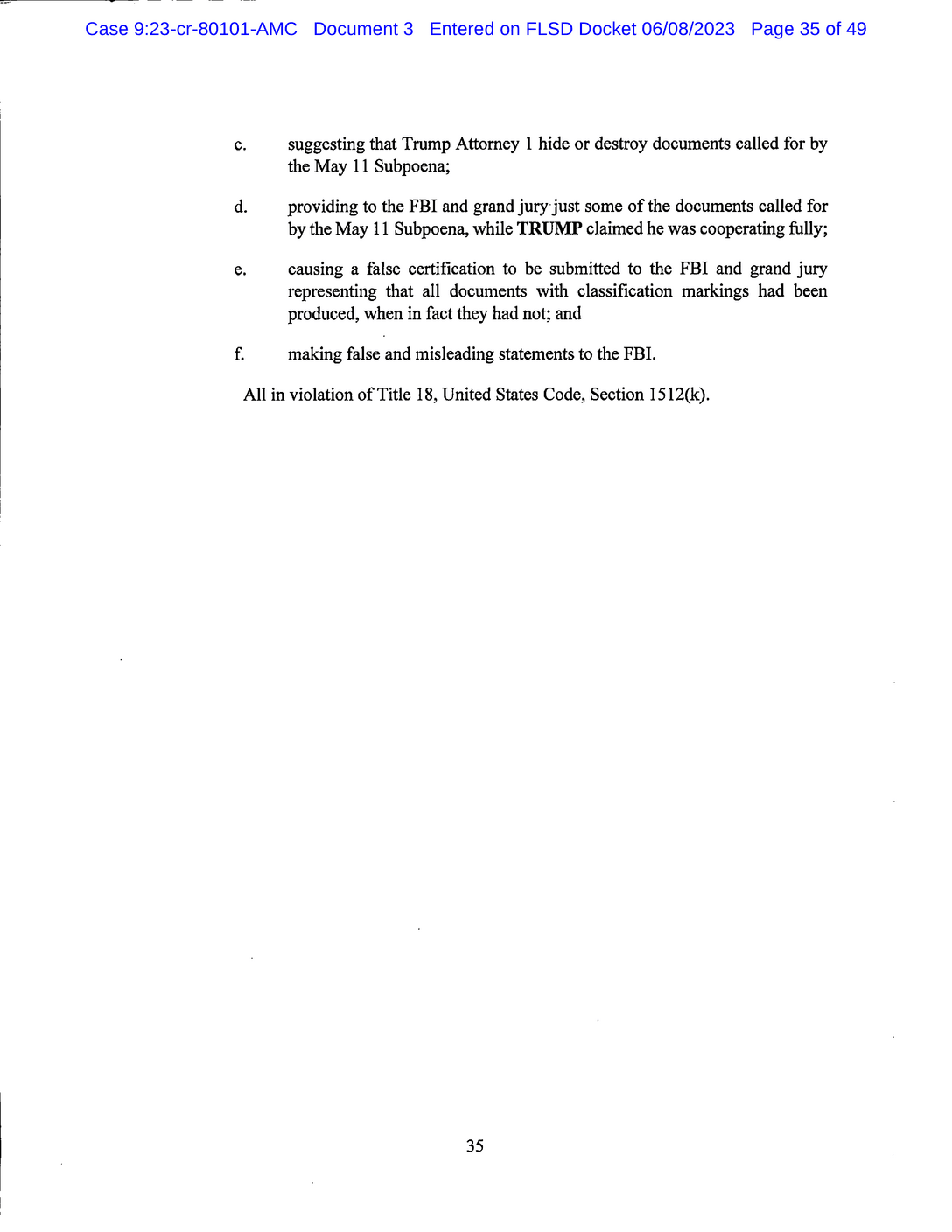
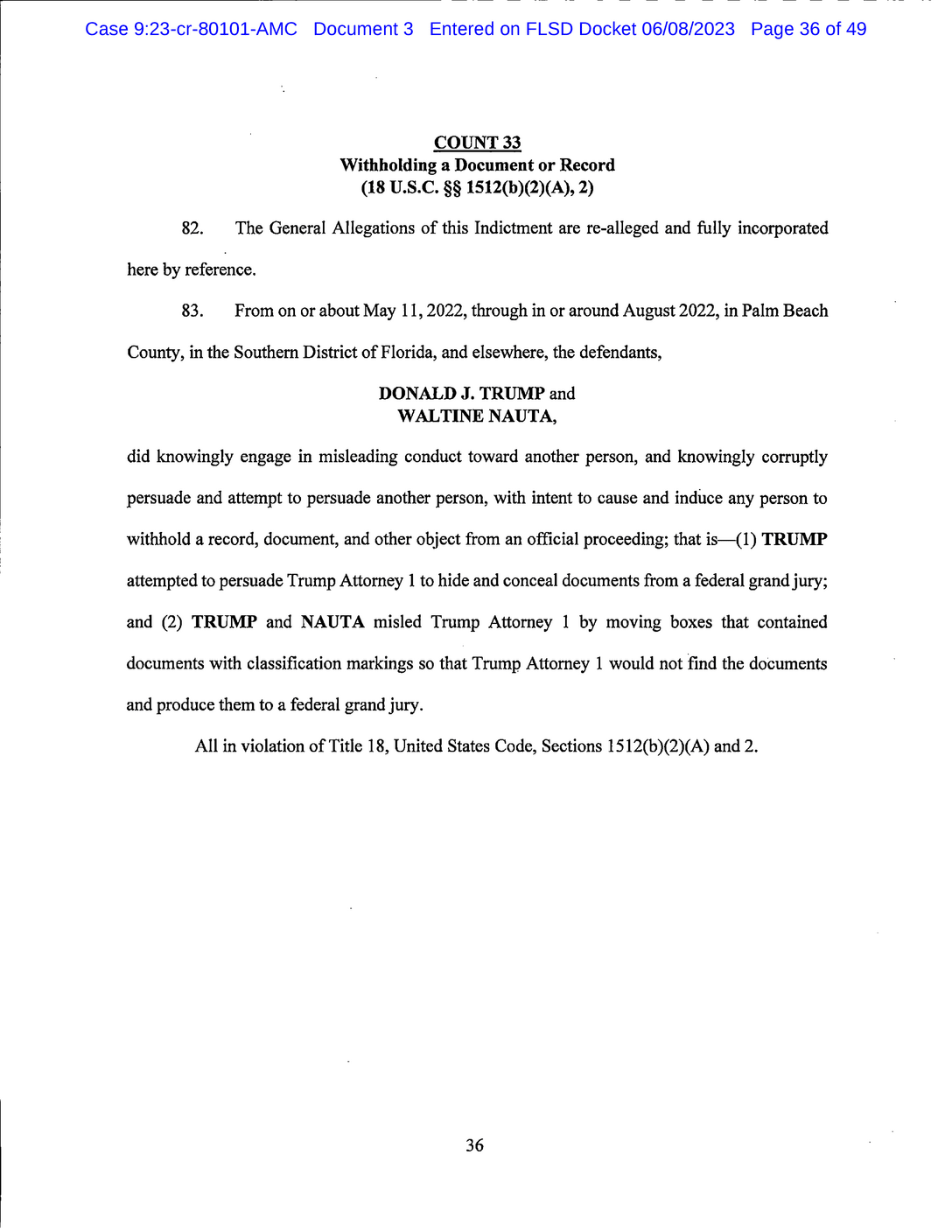
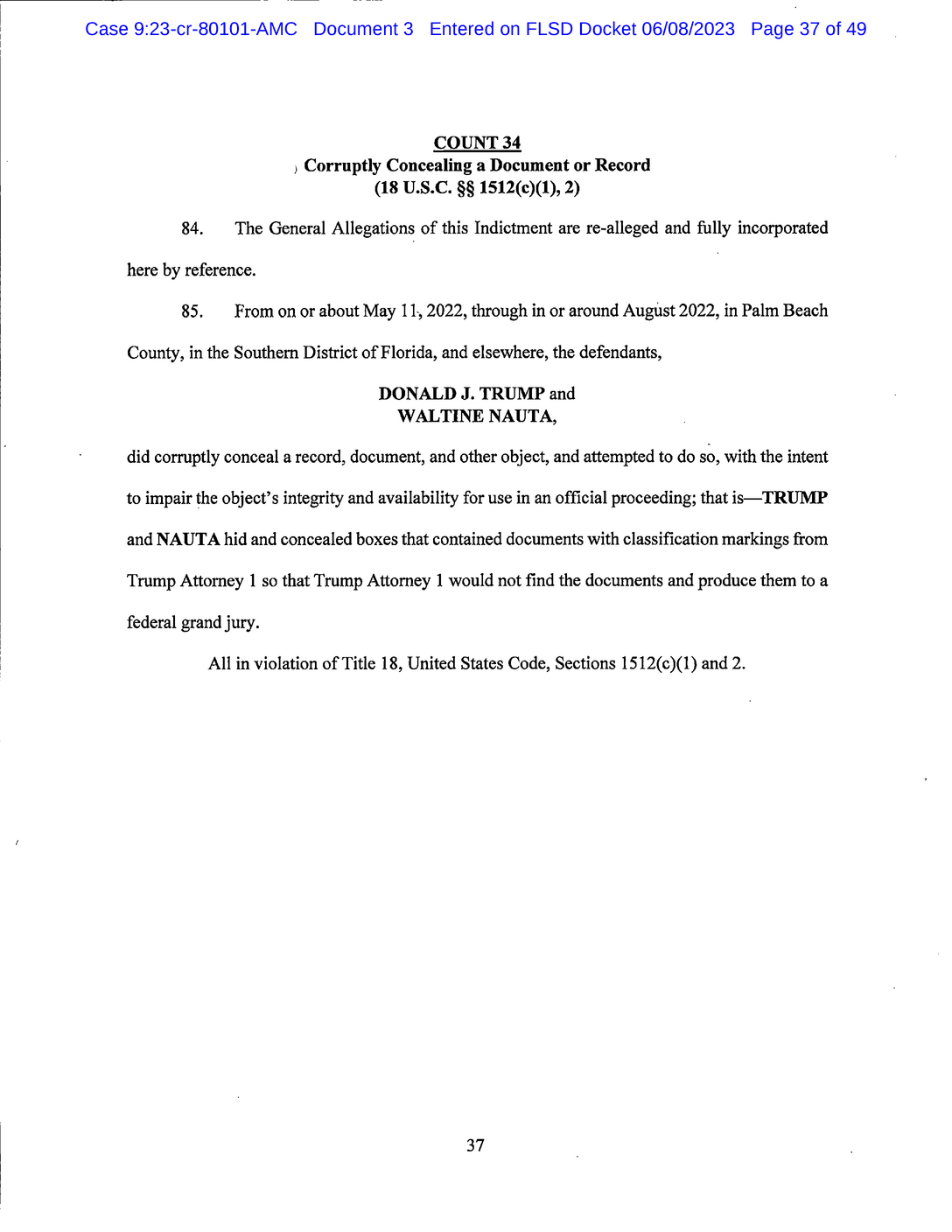
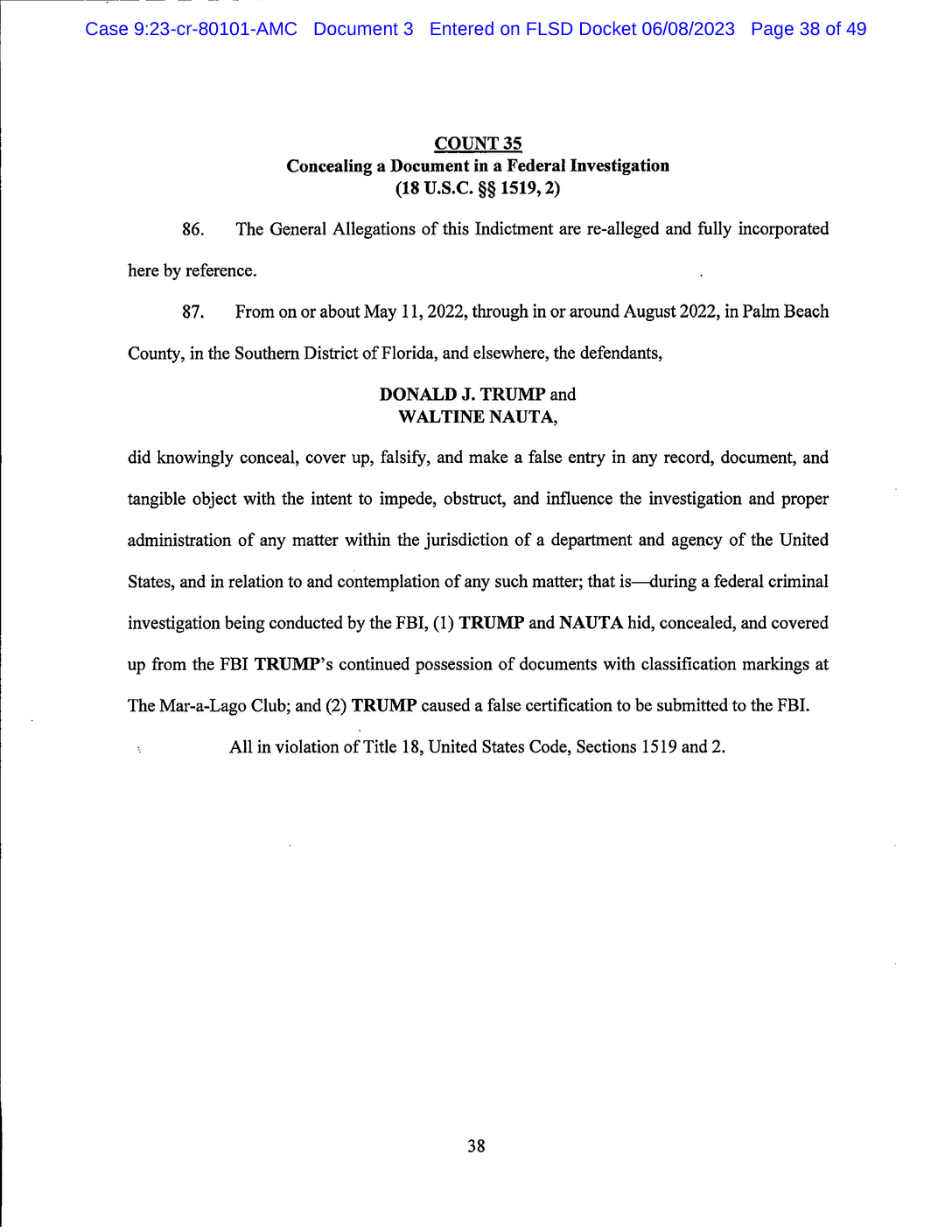
New York Times Analysis
« Previous
8
Mr. Trump has been charged with violating a law that makes it a crime to conceal records to obstruct an official effort. The penalty is up to 20 years per offense.
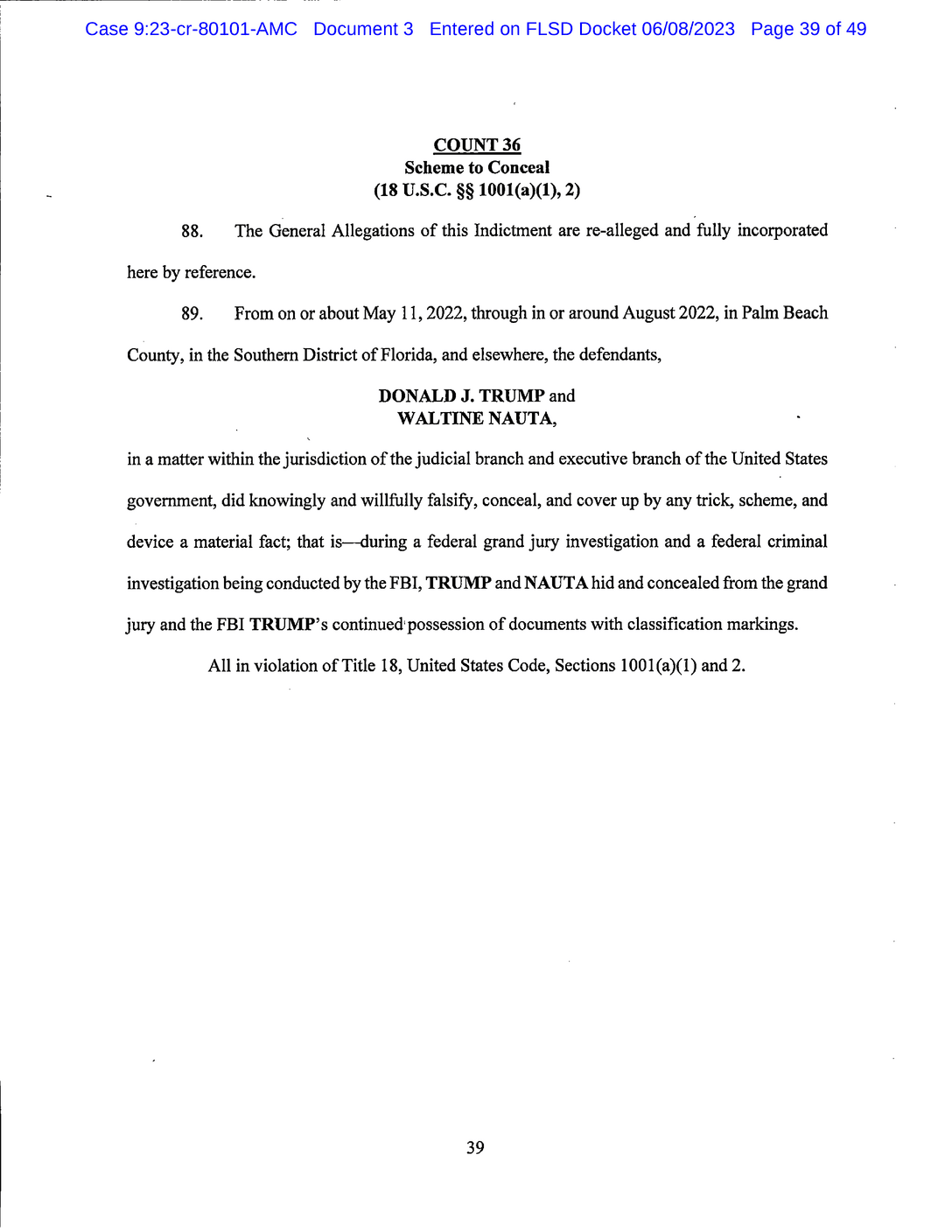
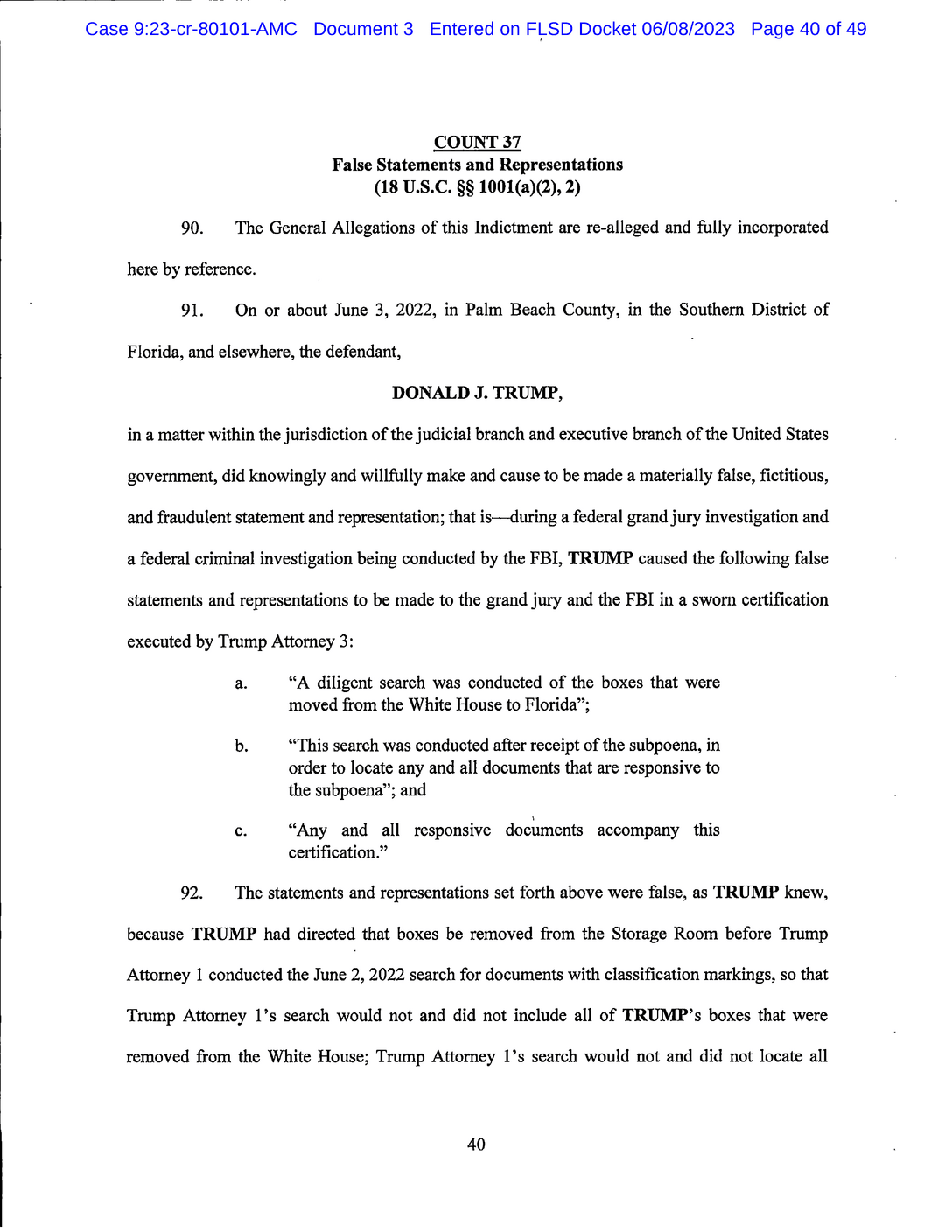
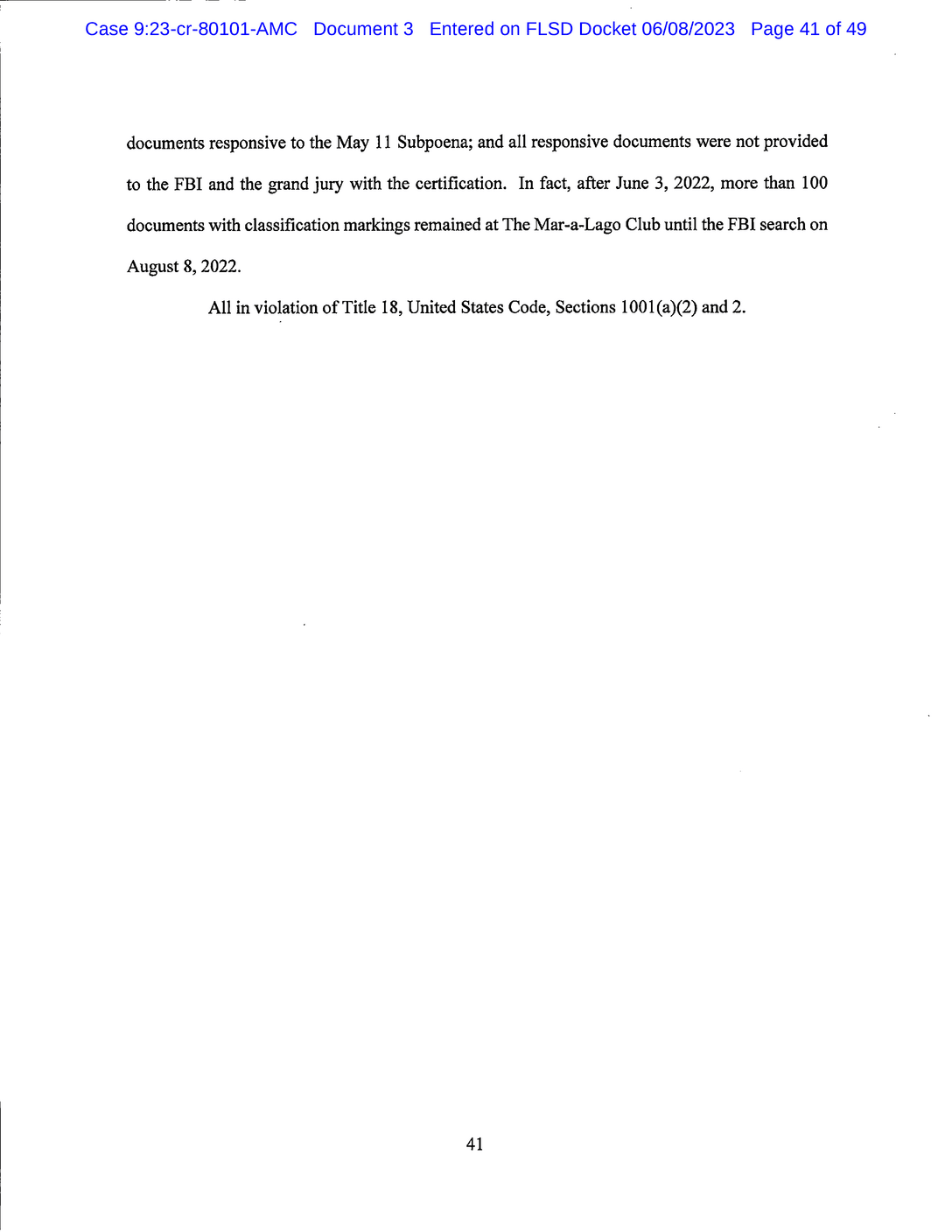
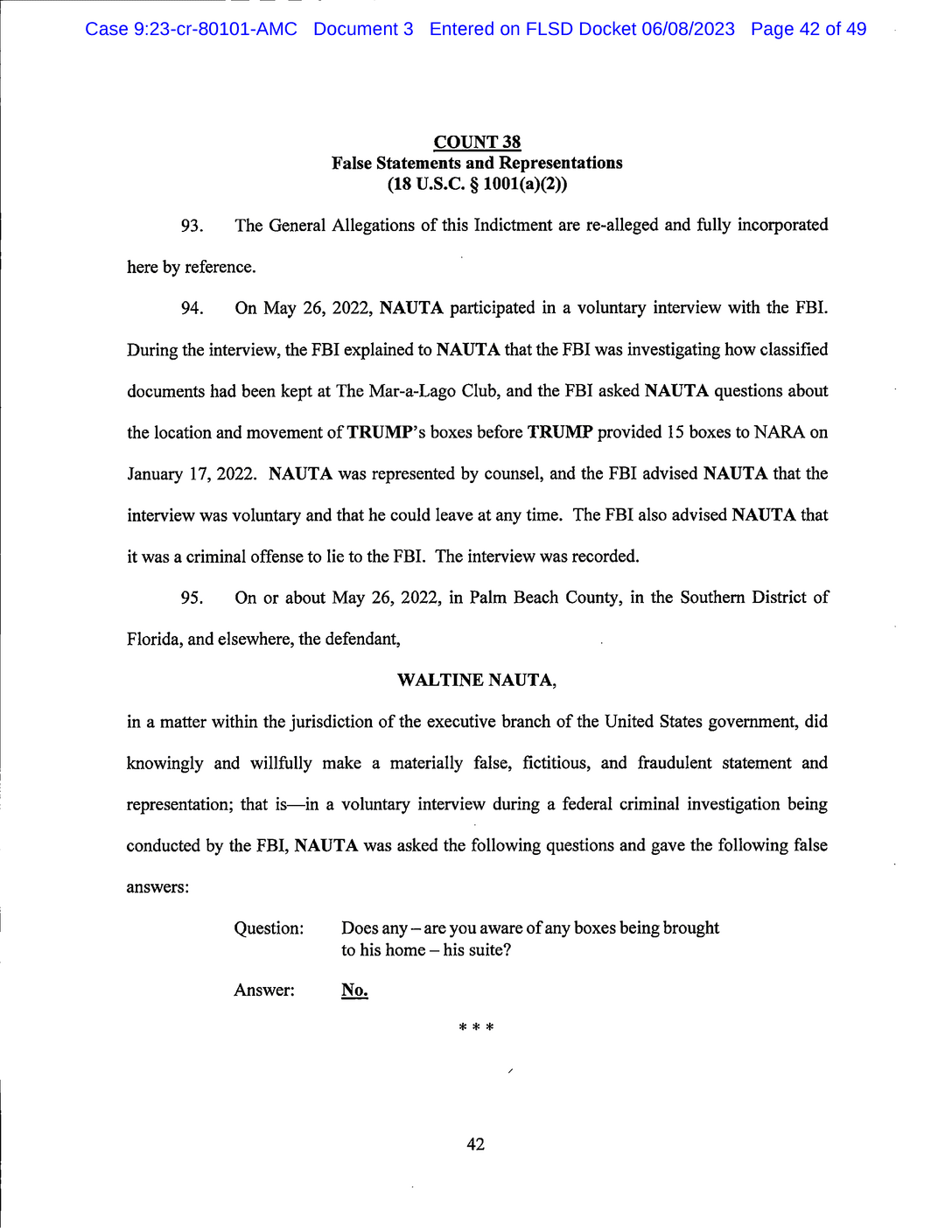
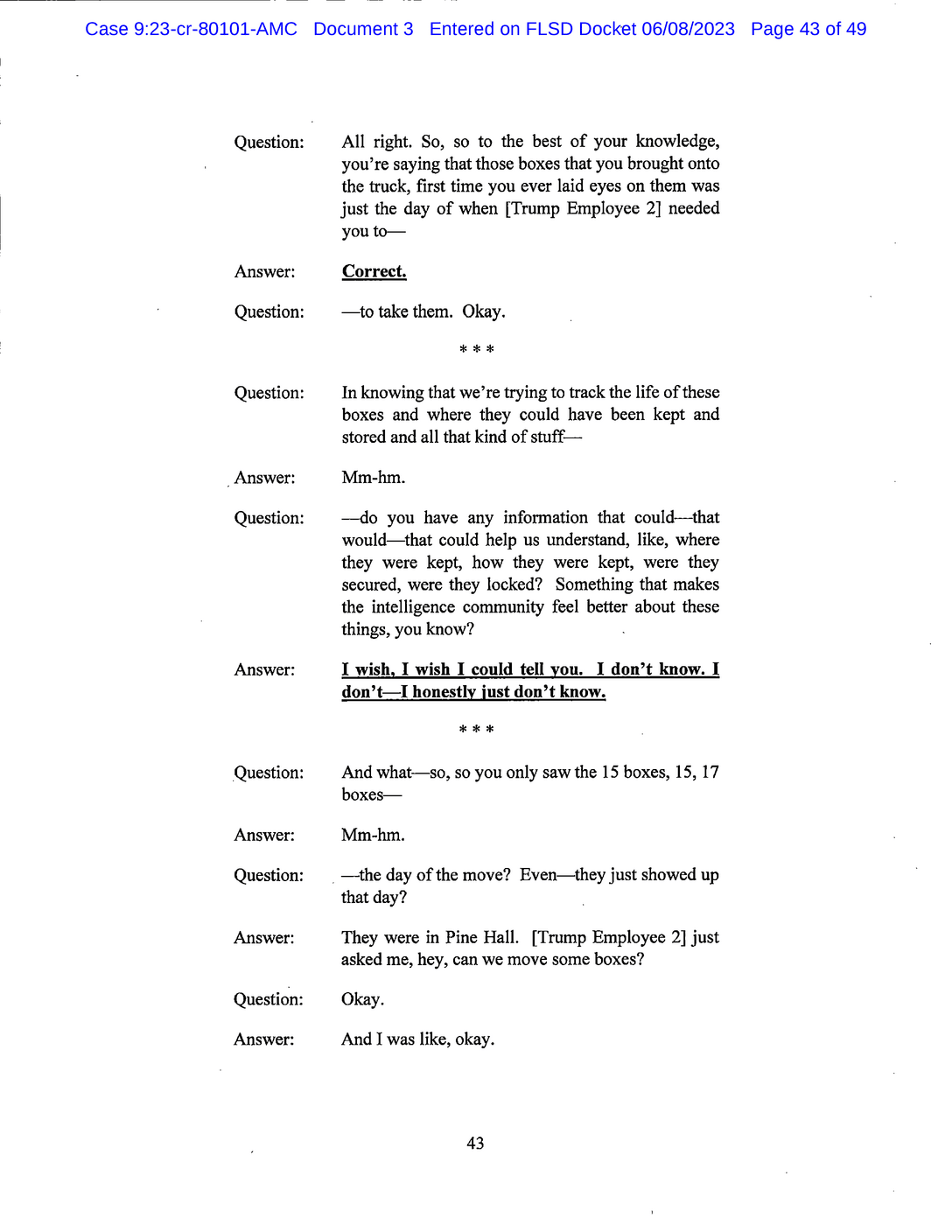
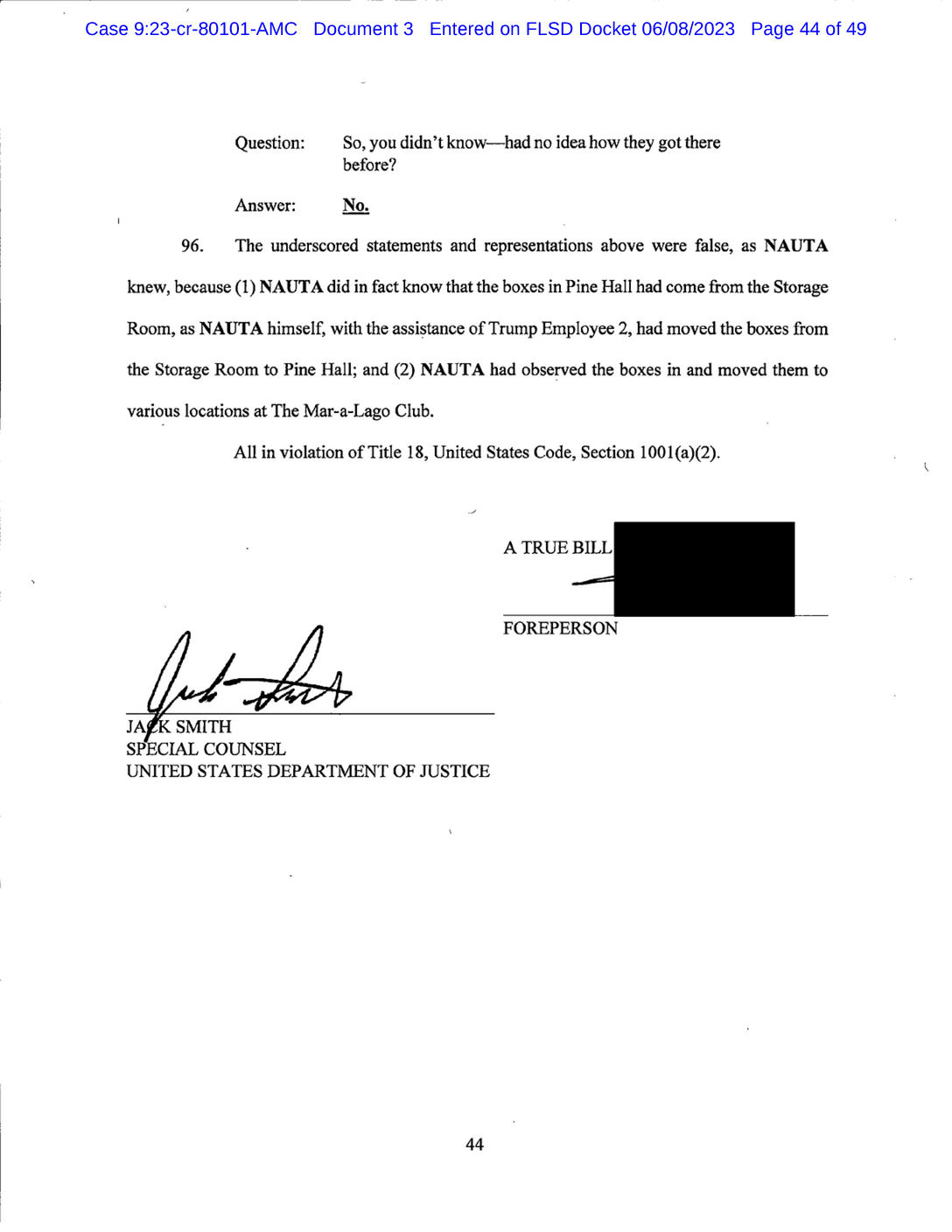
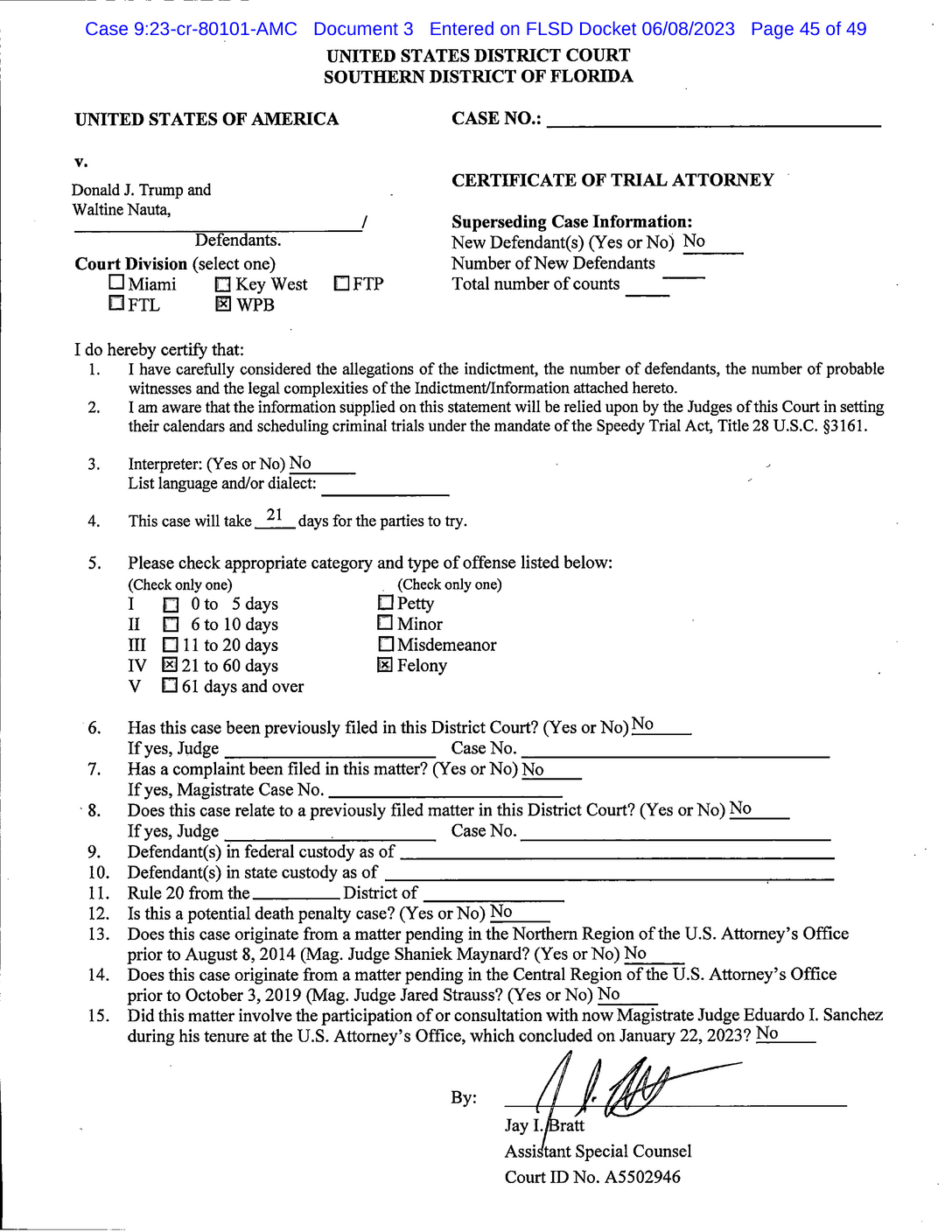
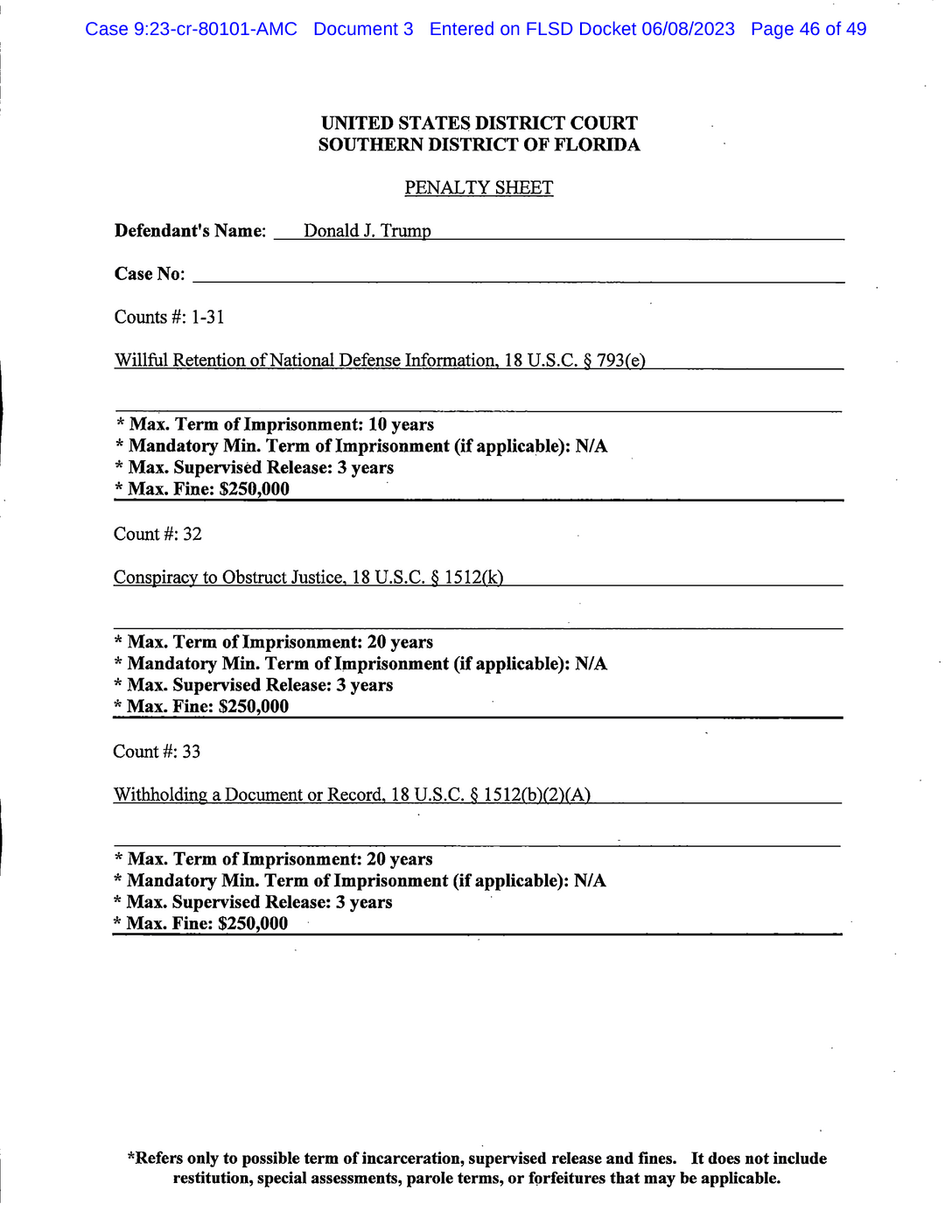
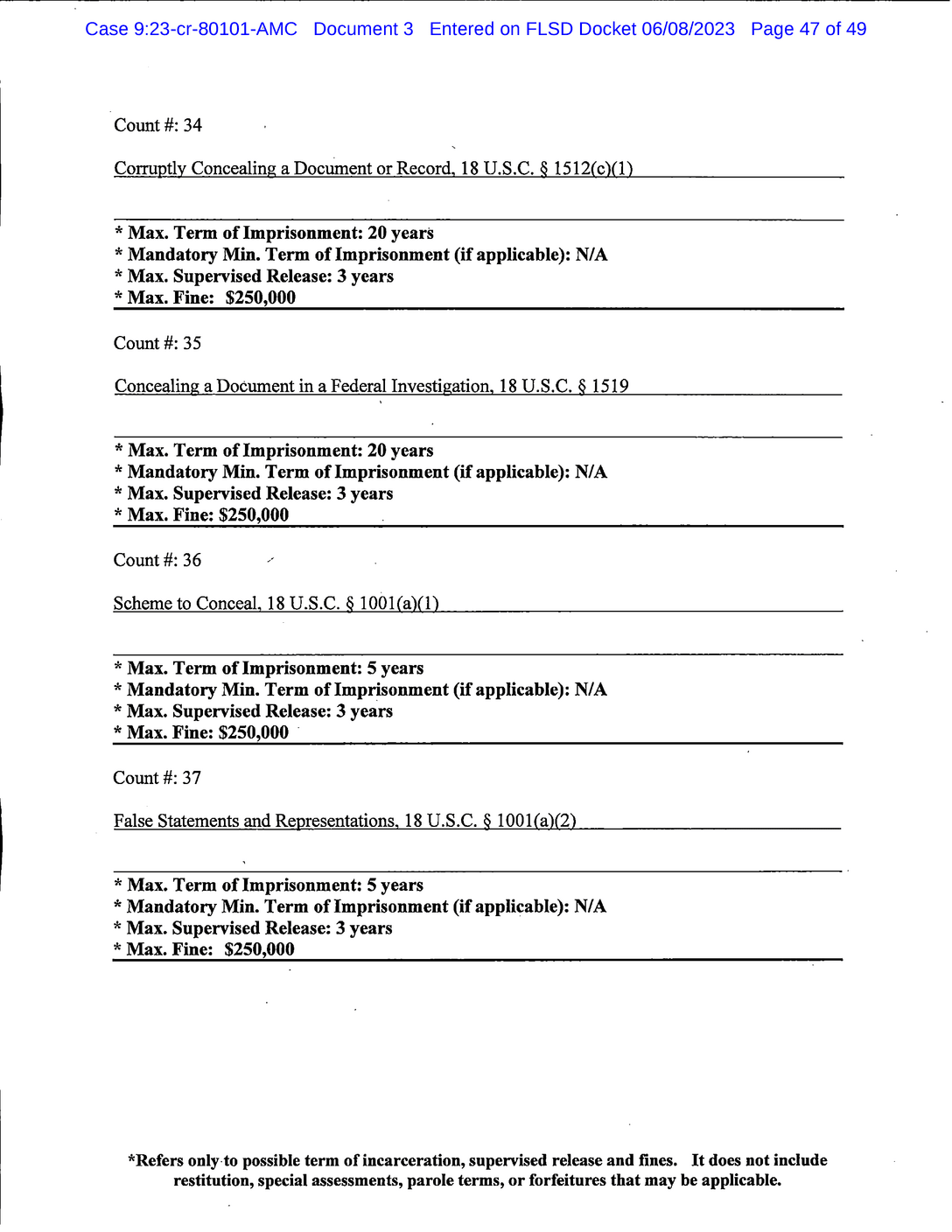
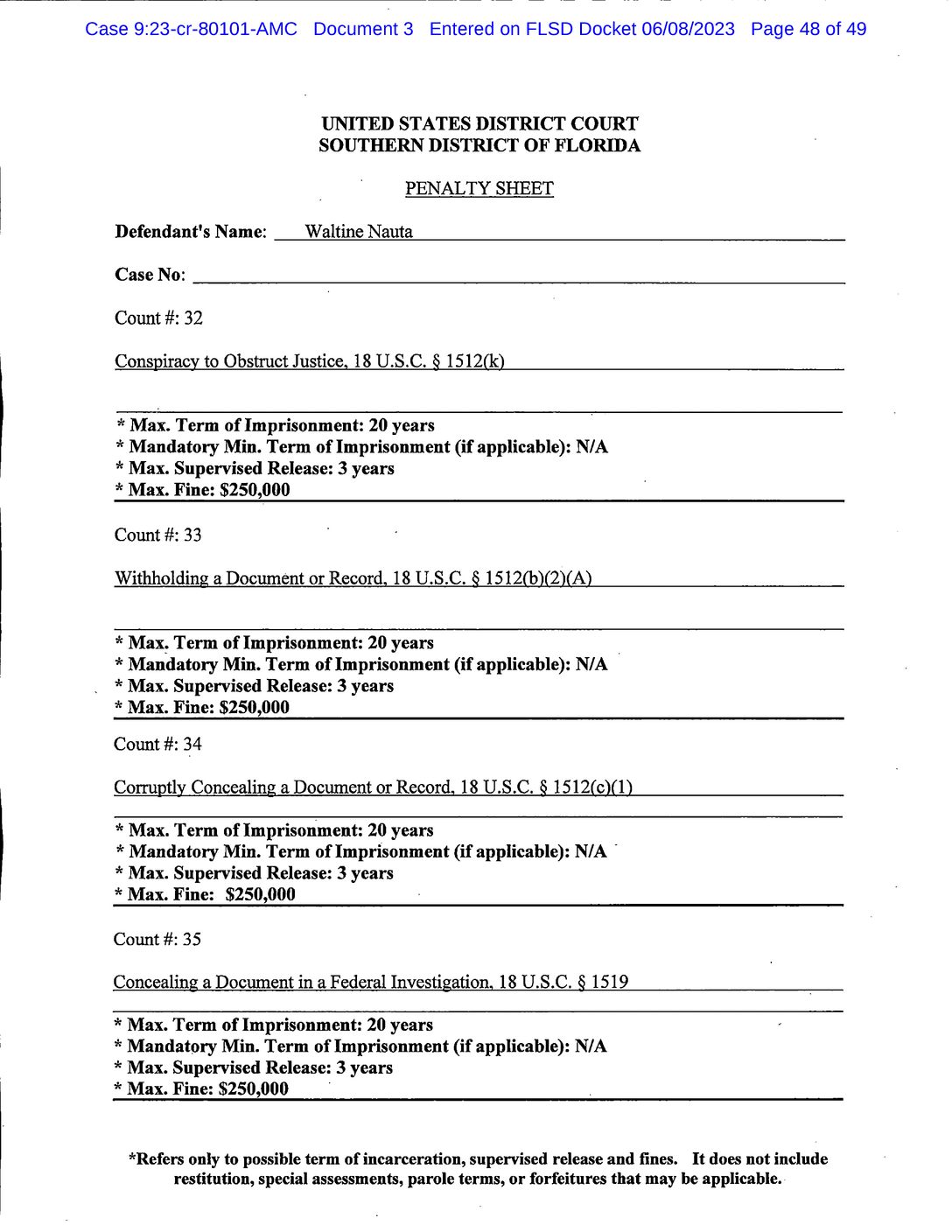
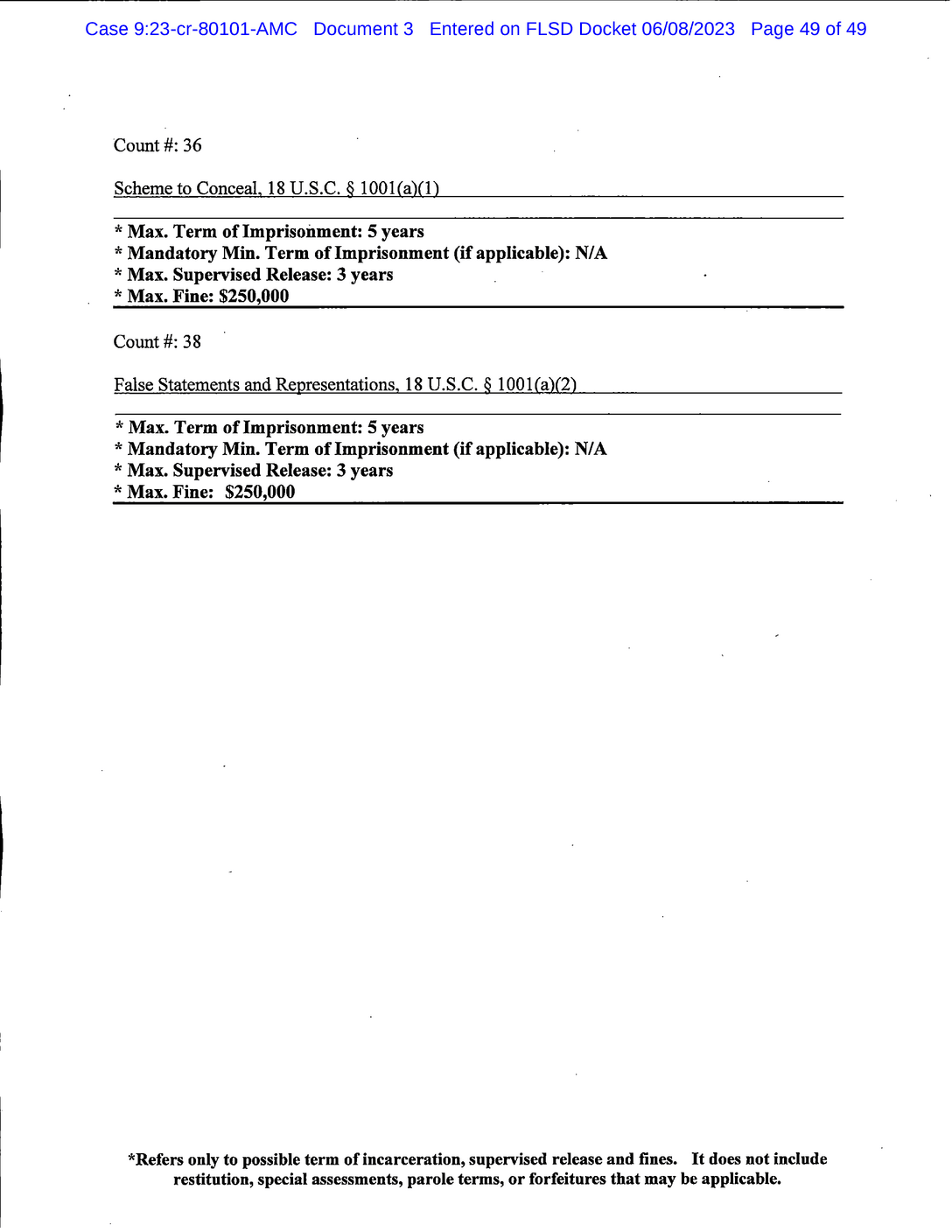
Read the full article Here


